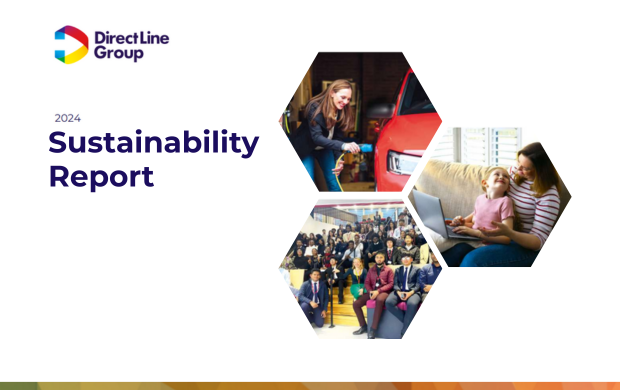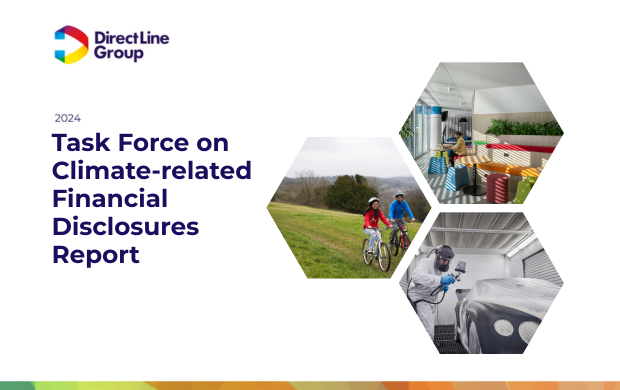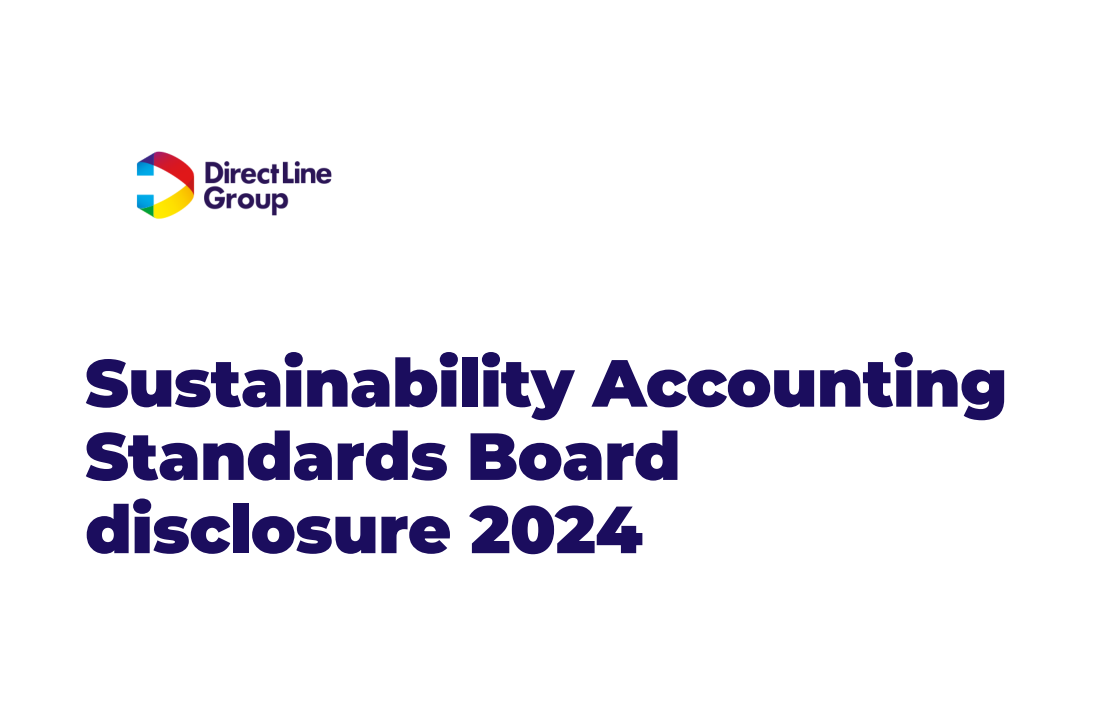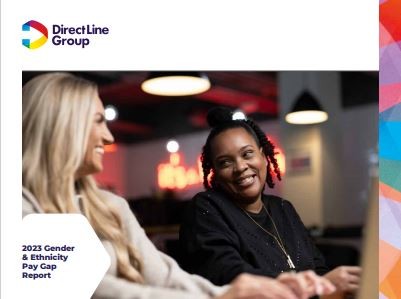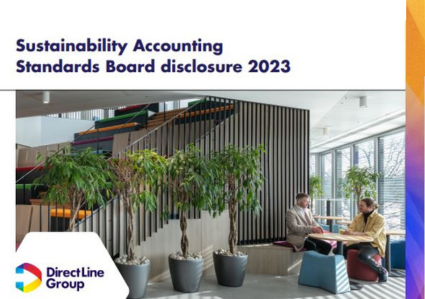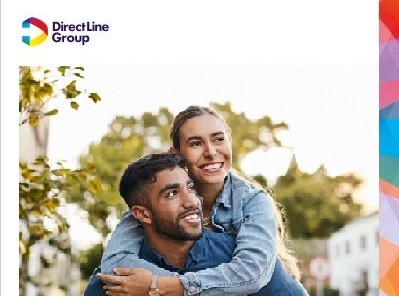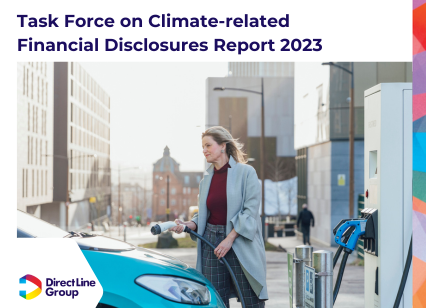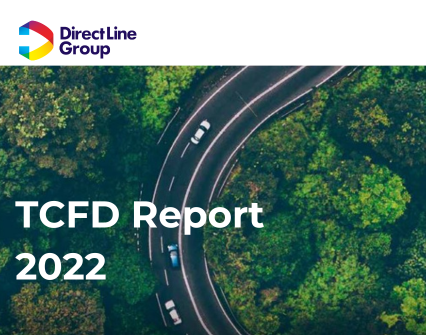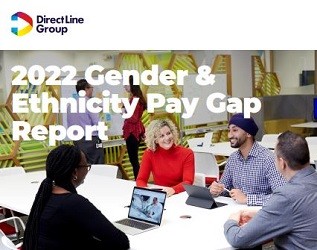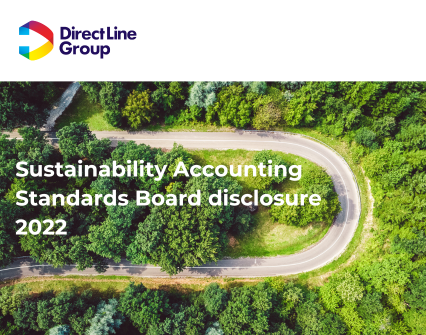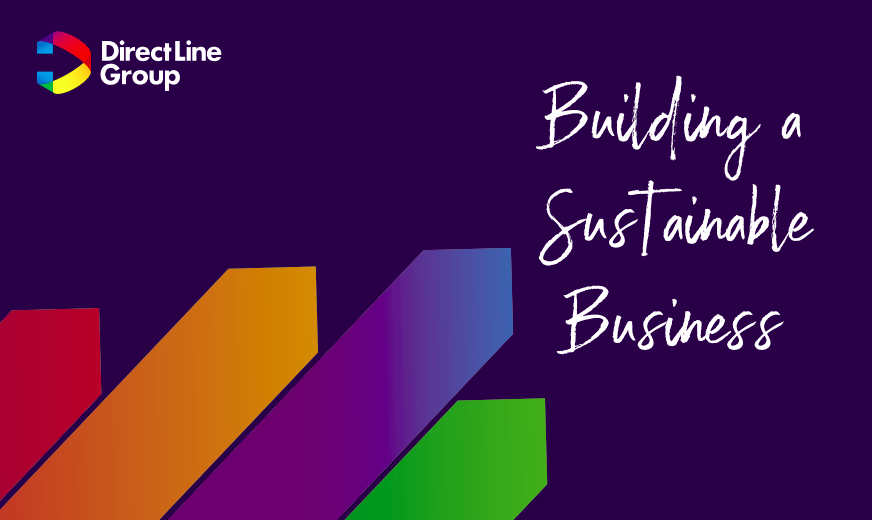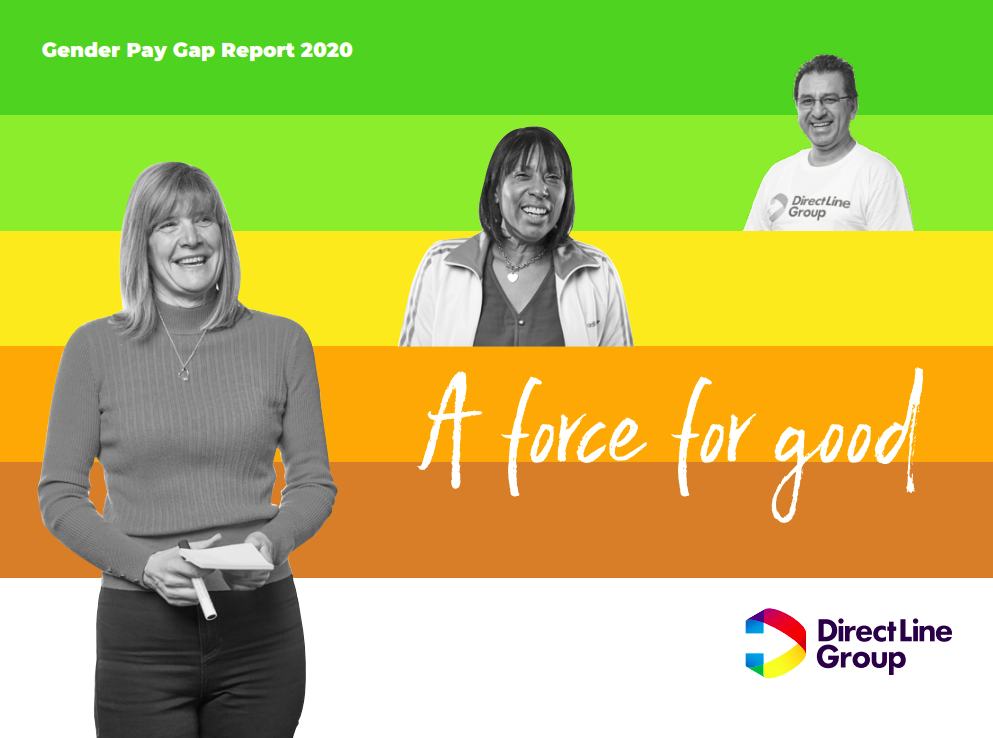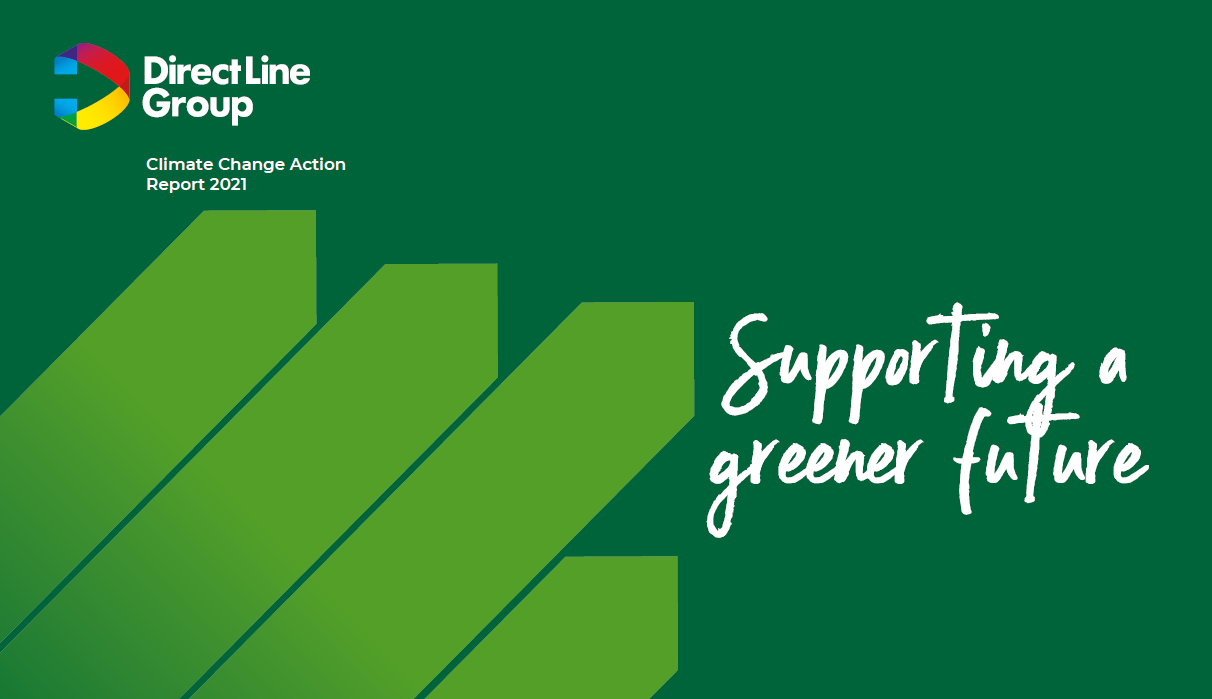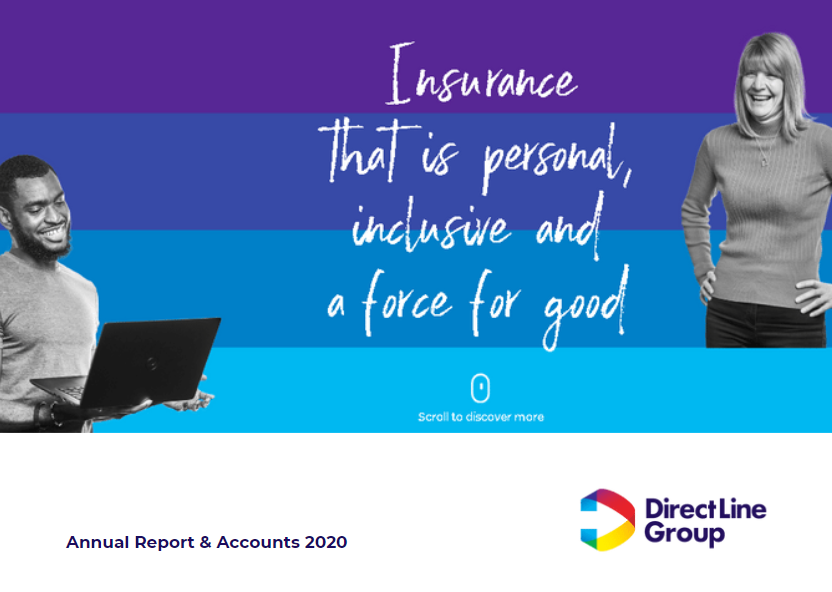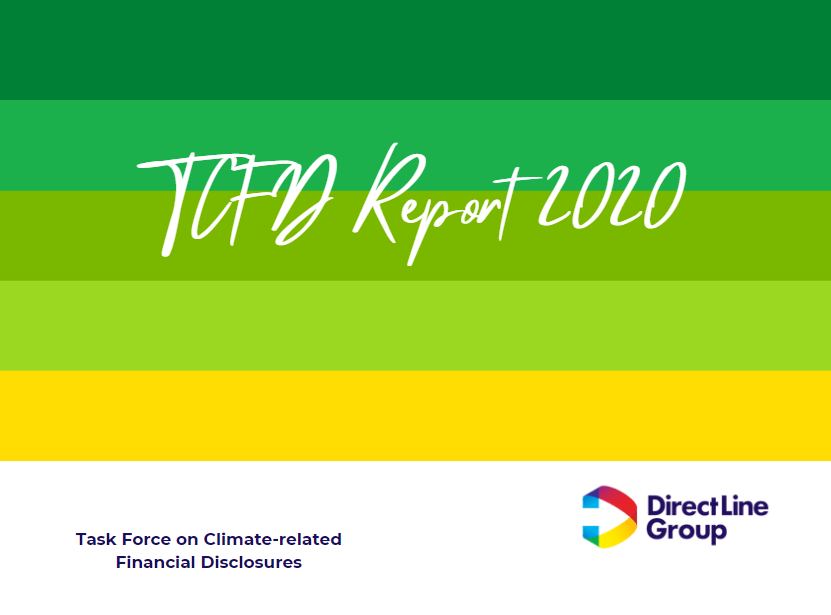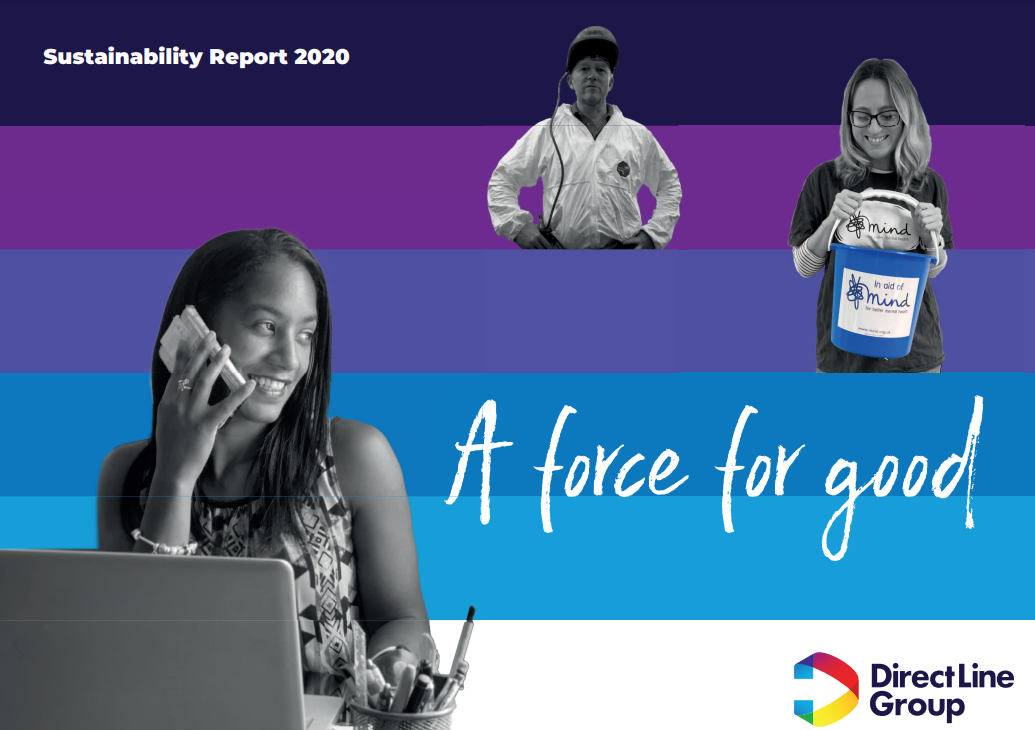These reports, policies and statements outline our position to our different stakeholders
Reports
2022 Reports
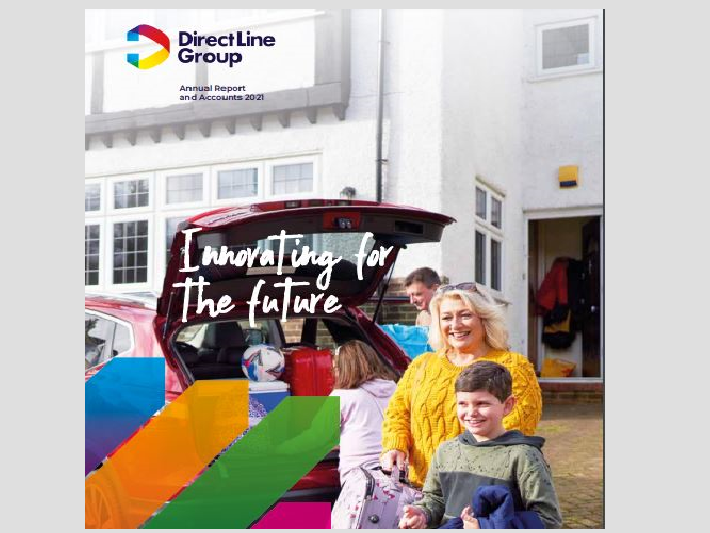
Annual Reports and Accounts 2021
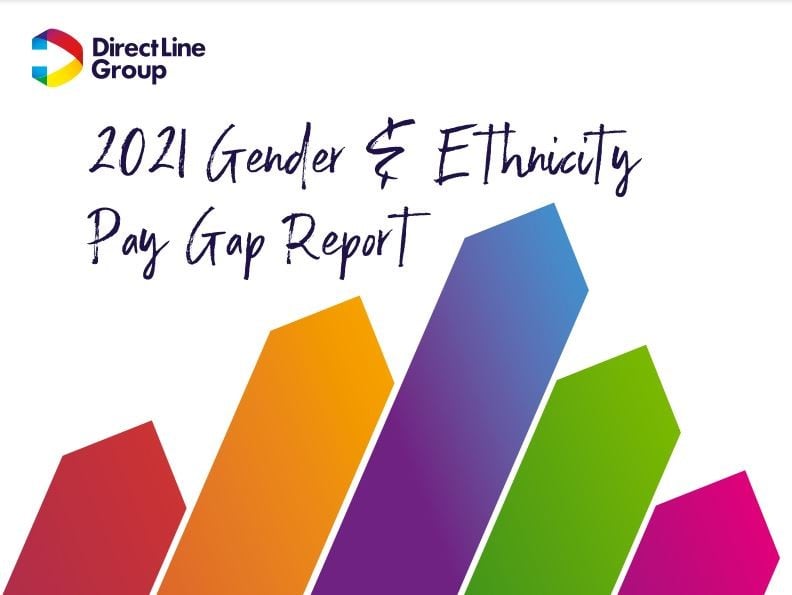
2021 Gender & Ethnicy Pay Gap Report
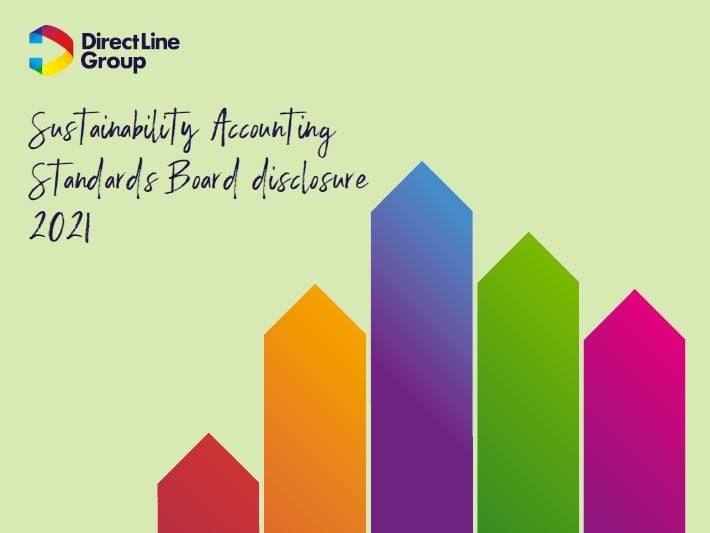
SASB Disclosure 2021
2021 Reports
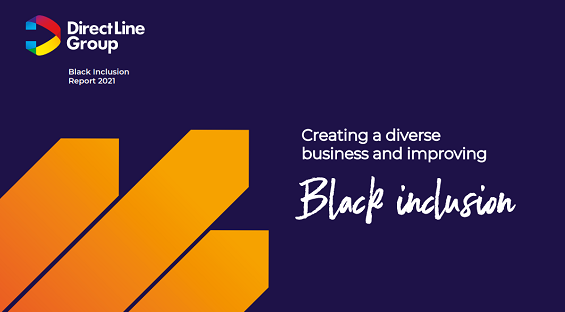
Black Inclusion Report
2020 Reports
Sustainability Report
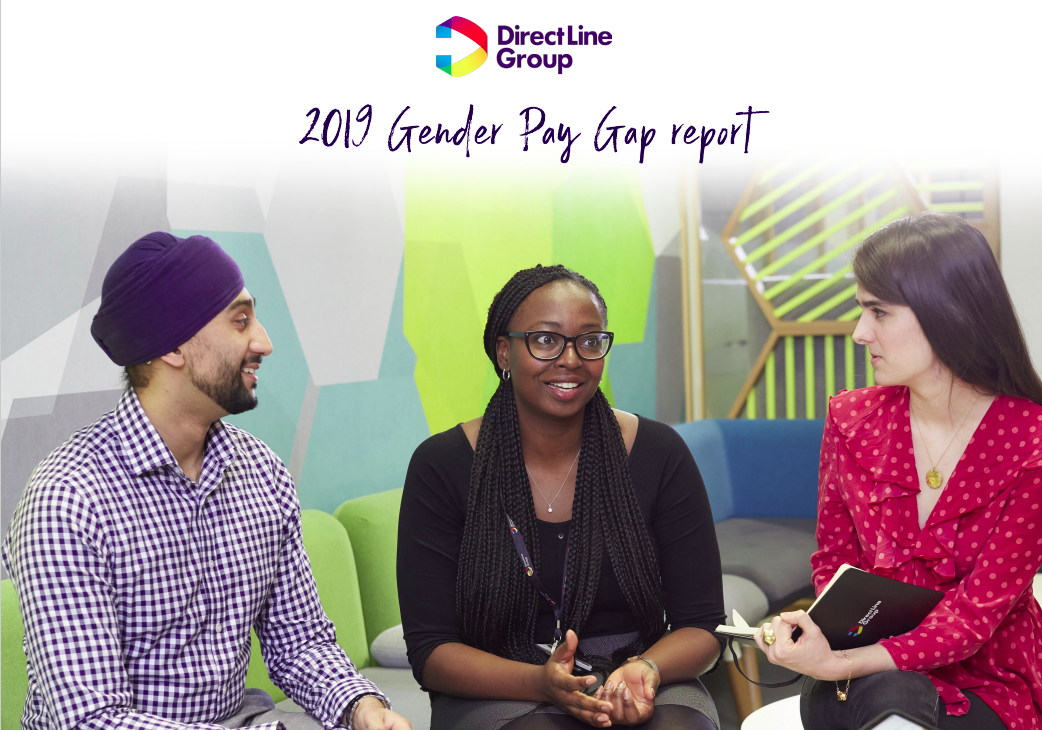
Gender Pay Gap Report
Download now
Anti-Bribery, Anti-Corruption and Financial Crime Preventions Policies
Code of Business Conduct
Download the Code of Business Conduct here
The Board requires the highest possible standards of professional and ethical conduct of itself and from all employees. Each business unit within the Group operates with policies and minimum standards and, as such, we adhere to a code of business conduct which sets out the basic ethical standards that are required across the Group and takes into account the following:
Business Practices
We are committed to engaging in honest, professional and ethical conduct and maintaining effective procedures to prevent confidential information being misused.
Dealing with Customers
We are committed to treating customers fairly, openly and honestly and operate an effective complaints process to deal with situations where these standards may be challenged.
Dealing with Shareholders and other Stakeholders
We shall seek to maximise shareholder value over time, recognising that wealth generated also benefits customers and employees as well as the communities within which we operate.
Dealing with Employees
Maintaining a working environment that attracts, motivates and retains employees and will be intolerant of any type of discrimination, harassment or victimisation.
Dealing with Suppliers of Goods and Services and Business Partnerships
Maintaining the highest possible standards of integrity in business relationships with suppliers and partners by treating them honestly and with respect and avoiding compromising offers of gifts and hospitality.
Dealing with Communities and the Environment
We are committed to contributing to the social and economic well-being of those communities where we are an employer and encourage employees to participate in projects and initiatives to strengthen those communities.
Dealing with Competitors
We are committed to ensure we compete with competitors honestly and in accordance with the relevant Competition Law.
Dealing with Regulators
Maintaining a constructive and open relationship with our regulators to foster mutual trust, respect and understanding and will not offer anything to officials in return for favourable treatment in any way.
Ethical Code for Suppliers
Download the Ethical Code for Suppliers here
Introduction – Building an Insurance Company for the Future
We recognise that as one of the UK’s leading general insurers, our responsibilities extend beyond our commercial interests, and that we play an important role in the areas in which we trade. We wish to continually develop our focus on Environmental, Social and Corporate Governance (ESG) by focusing on our 5 sustainability pillars: customer, people, society, the planet and governance. We value that our supply chains play an essential role in us meeting our ambition to continually develop within these pillars. We wish to extend our commitments to our suppliers through specific improvement programmes and to seek to ensure our key supply chains protect people and planet whilst minimising waste and improve efficiency.
Our assessment process for our key suppliers takes into account the wide range of factors which we believe are inherent to operating as a sustainable, responsible and ethical business.
We are further committed to conducting our business with all suppliers in a fair and honest manner, with openness and integrity, in line with legal & regulatory requirements, and we expect all our suppliers to meet or exceed these same principles. The purpose of this document is to clearly articulate our position to suppliers and is divided into two parts:
Part 1 – Our commitment to suppliers, details our intentions for how we approach our interactions with our suppliers and how that aligns with the delivery of our sustainability pillars within the supply chain.
Part 2 - Our expectations of suppliers, defines the expectations of the companies that we work with. Our expectation is that all DLG suppliers confirm they agree to this policy and share this code with any employees and sub-contractors who will contribute to Direct Line Group (DLG) projects. We encourage suppliers to ensure that their own upstream supply chain adhere to the business principles outlined and we expect suppliers to inform us of any reason that they would not be able to comply with this code either now or in the future as aspects of this policy will be assured against.
PART 1 - Our commitment to our suppliers
- Conduct
- Relationship – Partnership
- Relationship - Development
- Selection process
- Supplier diversity
- Consultation and engagement
Conduct
We are committed to conducting our business with all suppliers in a fair and honest manner, with openness and integrity, in line with legal & regulatory requirements.
Relationship - Partnership
As performance of our suppliers is critical to our business, we aim to treat our suppliers with respect and to invest in long-term partnerships that benefit both sides. DLG’s objective is to deliver best value from our suppliers where appropriate on a long-term basis. While price matters, it is only part of the purchasing decision.
Relationship – Development
Our intent is to invest more time with each supplier, and to seek greater shared efficiencies throughout our supply chain. To support this, wherever practical and cost-effective, the purchasing and supply requirements of all the brands and businesses within DLG have been centralised and rationalised.
Our Selection Process
Our sourcing teams aim to conduct the supplier tendering and assessment process in an open and transparent manner, sharing information wherever appropriate to improve performance. When selecting our suppliers, we assess them against a wide range of criteria which include:
- Management capability and financial strength for long-term reliability.
- Ability to deliver enduring quality and value against the required specification and demand. We ass this assess by conducting rigorous due diligence before and after the bidding process, involving a full cost breakdown analysis, to ensure that the contract can be fulfilled.
- Commitment to innovation and their ability to help us develop new products, processes and ways of working that can give DLG a commercial edge.
- Commitment to the wider ESG agenda including setting Science-Based Targets and joining the Race to Zero campaign. We expect suppliers to embrace ESG activities by actively measuring and publishing Scope 1,2 and 3 emissions, commitment to SBTi (or equivalent) and net Zero, as Direct Line Group has. We will assess suppliers’ commitments and practices and apply a sustainability score during the sourcing process. More details can be found in our sustainability report (see useful links).
- We periodically screen our suppliers against applicable sanctions in order to comply with our responsibilities.
- We assure against contractual obligations, legal and regulatory requirements
Supplier Diversity
DLG is committed to providing equal opportunities in sourcing and supplier partnerships, regardless of race, gender, marital status, age, disability, religious belief, political opinion, or sexual orientation.
We aim to maximise supply chain opportunities by proactively seeking and building strong, value-focused relationships with our suppliers.
We believe that diversity in our work force and in our supply, base contributes to a stronger, better organisation, able to draw from a variety of resources with the aim of delivering increased value to our customers and investors. We want value created from our supplier relationships to help us achieve long-term growth, solidify our partnerships with our customers and preserve a competitive advantage.
Consultation and Engagement
We commit to meet our key suppliers regularly to review our business relationships, share ideas and encourage best practice. We endeavour to expand this to all suppliers where appropriate in alignment with our Procurement and Supply chain governance model. Furthermore, we encourage feedback on DLG as a customer. We particularly welcome feedback on how we can improve our policies and processes.
PART 2 - Our Expectations of Suppliers
Purpose and Scope of this Code
As a financial services business, many of our social and environmental impacts can be manifested through the operations and activities of our suppliers. To ensure that we continue to improve our ESG performance, achieve ESG targets we have committed to and adhere to any applicable regulations, it is imperative that we work with suppliers who:
- Share our determination to be highly successful and customer focused
- Run their businesses to the same high standards as our own
- Responsibly manage (or demonstrate their intention to work towards) their ESG impacts and activities to the same or advanced level as DLG
Our expectation on all suppliers that work with DLG is that you confirm you agree to this code, you share this code with any employees and sub-contractors who will contribute to DLG projects. We encourage you to ensure that your own upstream supply chain adhere to the spirit of these business principles, and we expect you inform us of any reason that you would not be able to comply with this code either now or in the future.
Ethical Code for Suppliers
- Legal and Regulatory Compliance
- Business Principles
- Human Rights & Labour Standards
- People and Society
- Environment
- Governance
Legal and Regulatory Compliance
We insist that all suppliers adhere rigorously to all relevant legislation and regulation in their operations. This includes all applicable employment, health, safety and environmental law alongside key Anti-Bribery & Corruption, Privacy and Data Protection, and Anti-Money Laundering & Sanctions legislation. Regulatory breaches that come to our attention will be taken into account when renegotiating supplier relationships.
At an organisational level DLG has a strict policy on Anti-Bribery and Corruption. It will not engage in bribery or corruption in any form and has a zero-tolerance approach to any breach whether it involves private individuals or public officials (including in relation to facilitation payments). As such we expect that our suppliers enforce an equally robust Anti-Bribery & Corruption policy of their own, as well as complying with any relevant legislation.
Our expectations of suppliers go beyond regulatory compliance as demonstrated by DLG’s policy on Anti- Bribery and Corruption.
Business Principles
We expect that suppliers mirror DLG’s business conduct principles by doing business with us in a fair and honest manner, with openness and integrity, we further expect that suppliers are committed to operating to relevant best-practice standards of employment, health, safety and environmental management in the workplace, and that suppliers provide adequate working facilities for all employees.
Human Rights & Labour Standards
We expect that our suppliers adhere to the core International Labour Organisation (ILO) standards including
- banning the use of child labour and compulsory/bonded labour
- protect workers’ rights to non-discrimination and
- Compliance with relevant legislation in both the United Kingdom and the country of operation
Furthermore, we also expect our suppliers to adhere to the non-core ILO standards which include statements that workers should
- have safe and hygienic working condition
- a living wage should be paid
- working hours are not excessive
- abuse and intimidation are prohibited
- to exercise the same promotion of these requirements and standards across their supply chain
Suppliers should also comply with UK legislation, including The Modern Slavery Act 2015 which requires organisations to support the eradication of modern slavery through increased transparency across their supply chains. Suppliers that fall within the reporting threshold should provide assurances via a published statement outlining the steps that are being taken to support The Act, which should be up to date and available on request. In addition, those who fall outside the reporting threshold should be aware of their requirements in relation to the Act, understanding their own supply chain and ensuring steps are being taken to identify, manage and report on risks associated with Modern Slavery
People & Society
As a company that encourages a culture of openness, inclusivity and celebrates difference, we encourage suppliers to consider diversity and inclusion, employee engagement and the wider society within their top priorities. We look to embrace and support suppliers that have:
- Robust diversity and inclusion programmes
- Have made external diversity and inclusion pledges or commitments
- Measure employee engagement and satisfaction levels
- Support local communities
- Support continuous development or wider society through mechanisms such as apprentice schemes
Environment
As a business committed to strong business growth that is not achieved at the expense of the environment, we expect all suppliers to do their utmost to mitigate environmental risks and reduce their impact on the environment.
DLG, as a provider of financial services, may affect the environment directly through its own operational activities (scope 1 & 2 activities) and indirectly through the activities of our suppliers and investments (scope 3). The environmental challenges facing us all include our use of resources, the creation of pollution, the effects of its activities on climate change, and our impact on species and habitats. It is important that we not only monitor our own behaviour but also encourage others to adopt best practice.
In relation to climate change, we expect that Suppliers should be taking action to reduce environmental impact by specifically:
- Measuring and publishing Scope 1,2 and 3
- Have set, or are working towards setting a Science-Based Target through the SBTi (Or equivalent accreditation scheme)
- Have made a net zero commitment
- Working towards becoming the lowest carbon emitters within their industry
We encourage suppliers to undertake initiatives to offset emissions whilst they work towards reduction targets and undertake initiatives that reduce the impact and promote greater environmental responsibility for all other environmental challenges.
As a company that wants to work with sustainable businesses with a reputation for high standards of business conduct and a clear company vision, we encourage suppliers to demonstrate clear company governance by setting and actively reviewing published and internal statements on subjects that include sustainability, business policies, ethics and legislation that supports the operations being undertaken by Direct Line Group.
Prevention of Financial Crime
Download the Financial Crime Corporate Policy
Financial crime results in a heavy cost to the insurance industry and to the United Kingdom as a whole. Financial crime includes Bribery and Corruption, Money Laundering, Terrorist Financing, Fraud and Sanctions. The detection, prevention and reporting of financial crime is important to the Group. It maintains robust systems and controls with clearly defined policies and minimum standards to promote compliance with all applicable national and international legislation and regulation and industry approved guidance. These are regularly reviewed to ensure that they remain fit for purpose and align to the Group Risk Framework. This includes a robust financial crime governance framework and internal reporting and escalation channels. The framework utilises subject matter expertise to provide direction, guidance and training on financial crime threats and risks.
Employee Training
Mandatory Financial Crime Awareness training (which covers anti-bribery and corruption (ABC), anti-money laundering (AML), counter- terrorist financing (CTF), financial sanctions, fraud and the prevention of the facilitation of tax evasion) is undertaken by all employees at induction and on an annual basis thereafter with an assessment that needs to be passed. Completion rates are monitored and reported through the internal governance process. Additional, bespoke training is delivered to employees who work in business areas considered to have an elevated ABC risk including Board and ExCo members.
Further details of financial crime controls can be found below.
Anti-Bribery and Corruption (ABC)
Bribery is the offer, promise or giving of a payment (or other improper benefit) to influence someone to perform a function improperly. This includes payments to a Public Official intended to secure or expedite an existing duty, otherwise known as a ‘Facilitation Payment.’
Facilitation Payments (or “grease” payments) are unofficial payments made to Foreign Public Officials in order to secure or speed up the performance of a routine or necessary action, which public or private officials are already bound to perform (“routine duties”). They are commonly defined as:
- Being made only to speed up the performance of a routine duty
- Not being prohibited by law in the country of the recipient
- Common practice in the country of the recipient
- Of a nominal amount relative to the cost of living in the country where the payment is received (i.e £1 in the UK isn't worth as much to someone as it might to in less developed country)
Facilitation payments are illegal under the UK Bribery Act, as a consequence the Group does not permit the making or approval of facilitation payments.
Corruption occurs when one abuses their position of entrusted power for private gain.
The Group is committed to preventing these offences occurring within its business and to being compliant with anti-bribery and corruption principles and provisions anywhere in the world it has a presence. There are policies, procedures and training in place designed to ensure that the Group conforms to the provisions of the UK Bribery Act 2010. Risk assessments are conducted by all Group businesses to identify, mitigate and control potential bribery and corruption risks. The Group operates a zero-tolerance policy to bribery and corruption, including Facilitation Payments, and is dedicated to conducting business with honesty and integrity.
The Group expects the same high standards to be displayed by its employees, suppliers and any of its associated parties. Any breaches of the Group’s ABC policies or procedures will be dealt with appropriately and necessary action will be taken against the party in breach.
The Group’s Code of Conduct Policy sets out expectations on employee behaviour.
The Group’s ABC programme is managed by the The Group’s ABC programme is managed by the Designated Anti-Bribery and Corruption Officer and the position of ABC Accountable Executive is held by the Chief Risk Officer. This position is overseen by the Chief Risk Officer who maintains the position of ABC Accountable Executive. Breach of these standards is also a breach of the employment code of conduct and will therefore lead to disciplinary action and possible dismissal. Upon successful recruitment all employees affirm their compliance to the minimum standard document and receive annual ABC training where they must receive a pass mark of at least 80%. The ABC Team review the ABC Minimum Standard Document and the ABC training annually to ensure it is up-to-date and proportionate. Employees have various ways in which they can consult on ethical issues, they are able to speak with their line manager, approach the ABC Team directly or utilise the Group’s whistleblowing hotline where their issue(s) will be independently investigated and dealt with appropriately. The employee can choose to remain anonymous.
Anti-Money Laundering (AML) and Counter-Terrorist Financing (CTF)
The Group has established and maintains effective AML and CTF systems and controls. To facilitate compliance, an AML programme has been developed and implemented. This consists of policies, procedures, internal controls and systems. It aims to protect the financial and operational integrity of the Group by taking proportional and reasonable steps in combating any attempts to launder money. To support effective operation of this requirement, all employees and contractors must report suspicious activities to the dedicated AML Team who will investigate and report to the National Crime Agency where necessary.
Fraud Prevention
The Group works proactively to combat and reduce instances of fraud, whether opportunistic or part of a wider organised crime network. The Group has systems, controls and procedures in place to prevent and detect fraud and works closely with law enforcement to prosecute perpetrators of this crime. The Group also liaises with industry bodies and government agencies to share fraud data and increase detection rates. Fraud awareness training is maintained to keep abreast of evolving fraud risks.
Preventing the Facilitation of Tax Evasion
The Group has zero tolerance for any form of tax evasion and will thoroughly investigate any suspected breaches. There is a framework to ensure that the Group has reasonable procedures in place to prevent the facilitation of tax evasion by its associated parties, as required by the Criminal Finances Act 2017.
Sanctions
The Group has a dedicated Sanctions Team, with qualified and competent staff. The Sanctions Team has processes and procedures in place to complete appropriate and timely investigations of potential sanctions matches. In addition to sanctions screening activity, the Sanctions Team engages with projects and change programmes across the Group to ensure that the relevant sanctions requirements are met.
Conflict of Interest
A conflict of interest is where one person’s personal or private interests could affect the objectivity of their duties and responsibilities. Conflicts can arise in the normal course of business between:
- the Group’s own interests and those of its customers;
- the interests of the Group’s clients; or
- the interests of the Group’s employees.
The Group is committed to minimising all conflicts of interest. Guidance and training are provided to colleagues through the Employee Code of Conduct, the Conflicts of Interest Minimum Standard and the Group’s annual mandatory policy learning module.
Whistleblowing Policy
The Group takes all whistleblowing concerns seriously. The Group’s Whistleblowing Policy sets out the controls within which the Group promotes a climate of openness in the workplace and creates a positive environment in which all persons can raise any concerns without fear of reprisal.
The Group’s Whistleblowing Policy also provides advice and guidance for employees to make protected disclosures utilising the services of an external third party. All employees/contractors can raise concerns via their people manager or utilise the services of a reporting tool managed by an independent third party. It provides a free, confidential 24/7 telephone helpline and web-based service for disclosures to be made. When making a whistleblowing disclosure, whistleblowers do not have to disclose their name and contact details and can stay anonymous. All reports remain confidential.
All whistleblowing reports are reviewed and thoroughly investigated by the Group’s Internal Investigations function. The unit investigates, collates and analyses management information on whistleblowing disclosures including any emerging themes or trends, and reports these regularly to the Board Risk Committee as well as instigating remedial actions.
The Board Risk Committee and, in particular, the Whistleblowing Champion, provides oversight of the integrity, independence and effectiveness of the Group’s Whistleblowing Policy and procedures.
Internal awareness regarding whistleblowing is maintained by regular updates using the Group’s internal intranet and an annual online policy learning module which is undertaken by all employees.
To make a whistleblowing report please call the freephone number on 0800 316 0516 to make a disclosure or click on this link: https://secure.ethicspoint.eu/domain/media/en/gui/108494/index.html
Business Model Policies
Board Diversity Policy
Purpose and scope
The Board of Direct Line Insurance Group Limited, U K Insurance Limited and Churchill Insurance Company Limited believes that having a diverse and inclusive culture is essential for the long-term sustainable success of the business. This Policy applies to the Board and the Group's wider commitment to diversity and inclusion is encapsulated in a Group diversity policy and in statements about the Group's principles, practices, initiatives and targets disclosed in each Annual Report and to colleagues via the Group's intranet and leadership development programmes.
Board diversity
The Board sets the tone for inclusivity in the management of DLG’s business. It recognises the need to have leaders who live the Group's culture and values and believes that an effective board with a broad strategic perspective should embrace a range of gender, ethnicity, skills, experience and cognitive diversity, as well as diversity of regional, socio-economic, educational and professional background.
The Nomination and Governance Committee regularly reviews the composition of the Board, seeking to balance its skills, experience, knowledge and independence to put it in the best position to advance the Group’s strategy for the benefit of all of its stakeholders. When reviewing the Board’s composition, the Nomination and Governance Committee considers the benefit of all aspects of diversity, whilst also considering candidates on merit against objective criteria. In addition, the Committee oversees executive succession planning and the development of the talent pipeline, which aims to drive diversity, including gender, cultural and ethnic diversity, throughout the organisation and into senior management positions.
The Board is also supported by its Sustainability Committee which, as part of its supervision of the People Pillar of DLG’s sustainability strategy, oversees the Group’s performance in diversity and inclusion initiatives and practices.
At the date of approval of this Policy, following changes to the Board’s composition in early 2023, 30% of the Board’s members are women, including the Chair, and one member of the Board has an ethnic minority background. 55.6% of the Group’s Executive Committee and 44.6% of the wider senior management team are women. The Board acknowledges that the proportion of women Board members has fallen below the FTSE Women Leaders Review target of 40% and aims to improve its position on diversity when appropriate opportunities arise.
In its search for candidates, the Board aims to engage with executive search firms which are signatories to the Voluntary Code of Conduct for Executive Search Firms.
Review
The Nomination and Governance Committee will review the Policy annually and monitor its effectiveness, referring any proposed amendments to the Board for approval, and reporting progress against the Policy in the Annual Report and Accounts.
Approved by the Board on 30 March 2023
Complaints Data
At Direct Line Group we always seek fair outcomes for our customers. We welcome all feedback from our customers because it gives us a chance to put things right. We aim to deal with every complaint quickly and fairly, and to learn from our mistakes so we can improve our service. The following data details the volumes of complaints reportable to the Financial Conduct Authority (FCA) for each half year since January 2012.
Firm Name:
U K Insurance Limited
Other firms included in this report (if any):
Unacceptable Behaviour Policy
Introduction
At Direct Line Group, we aim to provide exceptional service and achieve great outcomes for our customers. We however understand that sometimes things don’t go as planned, and customers may feel let down or unhappy with the service they’ve received. If this happens, we want to know about it so we can address any concerns and try to put things right.
At Direct Line Group, we are dedicated to building an inclusive environment. We believe that everyone should be treated with respect and dignity, and no one should be subjected to abuse, threats, discrimination, or any other form of unacceptable behaviour.
We recognise that customers may be upset or frustrated when they contact us. We will not however tolerate unacceptable behaviour towards our staff.
Examples of unacceptable behaviour
Examples of unacceptable behaviour include, but are not limited to:
- Making threats towards our staff or business,
- Behaving in a harassing or discriminatory way towards our staff,
- Making abusive or offensive comments,
- Using inappropriate or offensive language,
- Making racist, sexist, homophobic or other discriminatory remarks,
- Demanding a response or action within an unreasonable timeframe,
- Insisting on speaking to a particular member of staff when that is not possible or appropriate,
- Making unreasonable or excessive demands on the time and resources of our staff.
How we manage unacceptable behaviour
Before we make any decisions under this policy, we will conduct a thorough review of the situation and always consider the individual circumstances.
If we decide the behaviour is unacceptable, we will take action which may include, but is no limited to:
- Communicating our concerns to the customer,
- Placing restrictions on contact with the customer,
- Notifying the relevant public authorities and/or taking legal action.
Making a complaint
If customers feel we have not met their expectations, they can contact us using the links below. We are here to help resolve concerns as quickly as possible.
How to get in touch:
Crisis Preparedness Policy
Our business resilience team run three operational teams - bronze, silver and gold -which provide a cross function team structure to deal quickly with a crisis and provide a clear escalation process should the crisis possess the ability to threaten our mission, business plan and future competitiveness. Every year the company runs a crisis exercise which tests our capacity to respond quickly and effectively to a crisis which has the potential to damage our reputation and inconvenience our customers. This exercise tests the structures and lines of communications between bronze, silver and gold teams, so that we can constantly improve our processes to provide confidence to our people, our customers and our shareholders that we are well equipped to deal with any crisis. To support our operational structures, we also have a set of guiding principles which provide the foundations for our actions and decision making.
- Putting people first: Our primary objective of any crisis response is to ensure the safety and welfare of people; whether they are employees, contractors, customers, suppliers, or the relatives of employees and customers who are involved in a serious incident or issue. Other considerations, such as financial implications of the situation, are secondary.
- Prudent over-reaction: The principle of prudent over-reaction should guide all elements of crisis response. It is better to over-react, then stand-down resources as more information becomes available, rather than delay mobilisation and the strategic response.
- Thinking from the ‘outside-in’: Before decisions are enacted, we think though how these actions will be perceived by stakeholders, be they employees, customers, shareholders, regulators or policymakers. Our company value of “do the right thing” applies and if something has gone wrong somewhere, we actively set out to resolve it.
- Proactively manage any crisis: Where possible, we take a proactive approach to crisis management, ensuring that the organisation is seen by key stakeholders as the authoritative source of information related to the situation.
- Speed of response: Our crisis response teams may be required to make difficult decisions, often on the basis of partial or incomplete information. Whilst it is vital that any response is considered and well thought through, it is crucial that responses are conducted as quickly as is practicable.
- Gaining shared awareness and decision making in uncertainty: We always seeks to achieve a shared view of the situation and rapidly generate strategy and action plans. Systems are required to ensure that situation briefs, objectives and action plans can be shared across the company. This is so that management can collaborate and enact timely and effective interventions to resolve the situation or crisis.
Legacy Executive Pension Plan
All trust-based Defined Contribution pension schemes, including the Direct Line Group Services Pension Scheme (1993), are required to produce an annual Chair’s Statement.
This, amongst other things, ensures that schemes:
- Meet governance standards
- Process core financial transactions promptly and accurately
- Disclose costs and charges (including transaction costs) relating to investments
To read the statement click here
Net Promoter Scores
We put our customers at the heart of everything we do. Our long-term sustainability is driven by understanding customers’ needs and acting in their best interests. As part of our customer strategy, and to ensure that the business strives to achieve a sustained and competitive level of service, the Board sets challenging customer centric KPIs. These are intended to ensure that remuneration is aligned with and supports continuous improvement.
Net Promoter Score (“NPS”) is an index that measures the willingness of customers to recommend products or services to others. It is used to gauge customers’ overall experience with a product or service, and customers’ loyalty to a brand. Overall, performance on the customer agenda against our 11 key customer metrics remains very strong, with the Direct Line and Churchill brands performing well in independent customer experience benchmarking studies and good progress on key Net Promoter Score measures and customer journeys.
We understand that customer expectations are continually changing. As a result we continue to strive forward, aim higher and improve what we deliver for our customers. We pride ourselves on continually improving the customer journey through a series of incremental improvements. That is why we have introduced a new customer experience framework, helping us to focus on customers and their needs.
| DL Index |
CH Index |
|
| 2013 (12MR) | 100 | 100 |
| 2014 (12MR) | 110.8 | 110.3 |
| 2015 (12MR) | 118.3 | 109.2 |
| 2016 (12MR) | 129.1 | 116.7 |
| 2017 (12MR) 2018 (Oct YTD) |
144.0 145.5 |
124.6 124.5 |
To view our performance over the last 3 years click here
Prompt Payment Code
The Prompt Payment Code sets out standards for payment practices for the benefit of suppliers. The Group is committed to maintaining the highest possible standards of integrity with suppliers and partners and is a long-standing signatory of the Prompt Payment Code. During the financial year, the Group remained committed to prompt payment terms to ensure fair payment practices.
Public Policy
Our aim is to contribute to public policy debates that have an impact on our business or our stakeholders. We seek to ensure an effective legislative and regulatory environment is in place that encourages responsible business practice and enables our business to flourish.
The following principles govern our approach:
- Direct Line Group does not make political donations or support party political interests and prohibits political involvement of any kind on behalf of the company, which includes political donations.
- Direct Line Group does not offer inducements of any kind to public officials, though it may invite officials to events and meet their associated costs.
- Direct Line Group does seek to inform policymakers, including government officials, legislators, regulators, about the nature of our business, the insurance industry and the business environment generally. Direct Line Group will develop policy positions (often, but not always, at the request of policymakers), which explain clearly what outcomes Direct Line Group seeks from the public policy process and why its proposals should be adopted. Activity and engagement involves oversight or approval from senior management.
- Direct Line Group believes in transparency of government relations and ‘policy positions’ are generally in written form and published unless commercially sensitive
- Direct Line Group may use external consultants and other advisers on matters of public policy, although Direct Line Group believes it should represent its own interests directly wherever possible.
- Direct Line Group is a member of a large number of bodies, including trade associations, which may participate in public policy activities from time to time.
- Direct Line Group does not participate in public policy activities in which it has no legitimate interest.
Responsible Investment
As Direct Line Group’s investment strategy evolves, the company is regularly looking for ways to align its investment practices with Environmental, Social and Governance ("ESG") issues. The investment strategy is determined by the Director of Investment and Capital Management and approved by the Direct Line Group Investment Committee. All external investment managers are signatories to the United Nations Principles for Responsible Investment.
The Group received approval from the Science-Based Targets initiative ("SBTi") in November 2022 for its Greenhouse Gas ("GHG") emissions reduction targets. Four of these cover the investment portfolio asset classes of corporate bonds, commercial real estate and CRE loans, representing most of the assets under management.
| Science-Based Targets | |
| Corporate Bonds | Lower the scope 1&2 temperature score1 to 2.1oC and the scope 1,2&3 temperature score to 2.3oC by 2027 from a 2019 base year score of 2.4oC and 2.8oC respectively. |
| Commercial Property | Reduce GHG emissions to 27.5 kg CO2/m2 by 2030 from base of 66.5 kg CO2/m2 in 2019. |
| CRE Loans | Reduce GHG emissions to 33.9 kg CO2/m2 by 2030 from base of 80.7 kg CO2/m2 in 2019. |
1 The temperature score is the implied level of warming of the portfolio based on investees publicly stated GHG emissions reduction targets using the CDP-WWF temperature rating methodology.
In addition, the climate framework for corporate bonds includes the below initiatives.
| Climate Framework for Corporate Bonds | |
| GHG Emissions Reduction | 50% reduction in weighted average GHG emissions intensity (scope 1&2 GHG emissions per $1m of sales) by 2030 from end-2020 base year. Scope 3 emissions to be included in coming years when data is more reliable. |
| MSCI "Asset Stranding" screen | No investment in companies with MSCI low-carbon transition category of "Asset Stranding". |
| Thermal coal screen | No electricity generators or mining companies deriving more than 5% of revenues from thermal coal unless the issuer has a non-default temperature score. |
| Preference for Green Bonds | Managers are specifically instructed to prefer investments in green bonds where the risk return characteristics are similar to conventional bonds. |
For investment grade corporate bond portfolios, we require the MSCI ESG rating of the portfolio to be at least as high as the reference index. We also apply the following exclusionary screens across all corporate bond portfolios:
- No manufacturers of landmines, cluster munitions or biological & chemical weapons.
- No purchases of issuers deemed in violation of the United Nations Global Compact principles by MSCI. Managers have the option to apply for a waiver for existing holdings which the Director of Investment and Capital Management reviews and decides whether to grant.
The commercial property portfolio invests only in assets with an energy efficiency level of D or higher (or with apportioned funds to achieve this level), exceeding the government’s present minimum requirement of an E rating. The portfolio also has a tailored set of ESG targets which cover, inter alia, carbon, energy, water and waste.
Within the infrastructure debt portfolio almost 90% of the investments are in schools, hospitals and other social infrastructure assets.
Underwriting Standards
DLG considers Environmental & Social responsibilities as part of its underwriting practices. For example, we are a member of the Flood Re scheme helping customers whose property may be at risk of flooding obtain affordable insurance. Our approach to flood modelling supports strong risk assessment of properties in flood prone areas helping ensure customers can access insurance and benefit from this joint initiative between the government and insurers. Linked to this, we offer support to our customers in raising awareness of the potential benefits and availability of flood resilient repairs during the claims process.
Within commercial lines business we employ surveyors that visit numerous clients to provide professional advice on all elements of insurance risk around their business. This feedback can help businesses to act more responsibly with respect to their immediate environmental and resultant impacts on their local community.
All of our business areas expect all of our suppliers to comply with all relevant laws and regulations.
Employee Policies
Flexible Working Policy
Here at Direct Line Group we support our people to work at their best. And we know that offering choice, flexibility and a good work life balance help us to achieve that.
We all have different things that matter to us – whether that’s driven by our stage of life, external commitments or personal interests. We value these differences and are committed to supporting your unique blend of work and home life where we can.
That’s why we offer a variety of working arrangements – from how you divide the time you spend working at home and in the office, to flexibility in the hours you work. It includes different working patterns, being flexible to support outside of work activities, supporting you in times of crisis, and understanding changing needs which might include when you are expecting an addition to your family, winding down to retirement or when you need to care for others.
These arrangements will depend on the type of role you do and the area of the business you work in. Speak to your hiring manager or recruiter to find out what’s possible in the role you’re applying for. It’s about finding the right balance that works for you, our business and our customers.
Where you work
We’ve introduced a hybrid working model at Direct Line Group, where most of our people split their time between home and the office. There are also some people who will spend most of their time working from home, and some who will spend most of their time working from a site.
There’s no one-size-fits-all approach across Direct Line Group, so we’ve created a simple framework with three areas – hybrid working, home first and location first.
Most of our people split their time between home and the office, including those in our customer-facing and central function roles. There are lots of positives about working from home – it can be a quiet place to focus and get things done, it provides flexibility between personal and work commitments and less time is spent commuting. But it’s also important that we can connect with each other, and you can’t beat doing that in person. Spending time working together in our offices, sharing ideas, collaborating on projects, or having a natter over a break.
How much time our people time spend working at home versus the office will vary for each business area and team, depending on the requirements of the role and how often you need to be in the office. It could vary from a couple of days a week to a couple of times a month.
There are some people who work from home most of the time, including people we’ve recruited on that basis. We know that for them connecting with their colleagues is just as important – and we’ll provide ways to strengthen those relationships and explore opportunities for them to spend time at a Direct Line Group site during the year.
Some roles by their very nature are based 100% at one of our sites, for example colleagues who support our customers in our Auto Services repair centres.
The hours and pattern you work
Normal working hours mean different things to different people. We welcome applications for full time, part-time, job sharing or flexible hours for the majority of our roles. We’ll always aim to support flexible working where we can, but this will of course depend on the role and area of the business. Some of our customer facing teams and Auto Services repair centres have specific shift patterns which your hiring manager or recruiter will be able to share.
Here are some of the options available:
- Full time – You’ll work a standard number of full time hours across set days each week or a variable shift pattern each week.
- Part time – You’ll work fewer hours a week than someone on a full time contract, either by working on fewer days, or for fewer hours each day
- Job share – You and a colleague share the duties of one full time job, with each of you working part time hours
- Flexible start/finish times – Vary your start and finish times, covering core working hours, completing your contracted hours in the way that suits you best
- Compressed hours – You compress your regular normal working week into fewer days for example a nine-day fortnight
Parental and other leave
Whether parents, grandparents, carers or pursuing your dreams in other ways, we want to help you focus on the things that are important to you.
That’s why we have a range of policies to support you to do the things that matter to you outside of work so you can flourish and thrive in work. They recognise the fact that everyone’s circumstances are different and are the starting point for you to have a conversation with your people leader about balancing the things that matter in your life.
Support at Direct Line Group includes:
- Employees with at least one year’s service receive full pay during the first 20 weeks of maternity and adoption leave. Those with six months’ service receive full pay during the first 10 weeks whilst all core benefits remain in place for all employees.
- Shared parental leave and pay mirrors our maternity and adoption benefits and our employees can ask to split their leave into shorter periods with periods of work in between.
- Up to 12 weeks’ full pay as part of a phased return to work following a period of maternity/adoption/shared parental leave for all employees.
- Two weeks’ paid paternity leave for all employees.
- Up to four weeks’ unpaid parental leave each year is also available to all parents, carers and grandparents (recognising the increasingly important role that they play in childcare).
- A period of paid compassionate leave can be agreed for anyone experiencing, for example, the bereavement, or serious illness of, a close relative or dependent.
- Paid time off and/or flexible working arrangements can be agreed during IVF investigations and treatment.
- Up to 12 months unpaid lifestyle break for anyone wishing to pursue something that really matters to them such as volunteering, travelling, extending maternity leave or re-training.
- Reasonable time off to deal with emergencies involving those that depend on them.
Health & Safety Policy
Download the Health & Safety Policy here
We’re committed to ensuring the health, safety, and wellbeing of all our people, The health, safety and welfare of our colleagues, customers, contractors, visitors and others affected by our actions, is of paramount importance to us and we put our duty of care above all other commercial priorities.
We take all reasonable steps to protect the health, safety and wellbeing of colleagues from risks in their work or working environment, whether that is at our premises, at the roadside or in other locations where we run our business.
Our Health, Safety and Wellbeing Policy is to:
- Understand our health and safety statutory and regulatory requirements and manage these through our health and safety management system and our property management systems, which we access through our Facilities Management suppliers.
- Manage our health and safety risks through our risk assessment process to identify hazards and eliminate or reduce risk to an acceptable level.
- Report and review accidents, incidents and near misses to evaluate our control measures, make improvements and minimise the likelihood of recurrence.
- Provide and maintain safe working environments and equipment.
- Define roles and responsibilities for health and safety and ensure colleagues have the resources to discharge these responsibilities accordingly.
- Consult and communicate with our colleagues and health and safety representatives to promote engagement with our health, safety and wellbeing processes.
- Train and motivate our colleagues to conduct their activities in a safe, healthy and responsible manner.
- Provide a comprehensive programme of health surveillance for colleagues working in potentially high-risk areas of our business.
- Provide a comprehensive Employee Assistance Programme to support our people at their time of need.
- Measure our health and safety performance to drive continuous improvement and report of performance transparently to our board and stakeholders.
Our Chief Executive Officer is the Board Member who has ultimate responsibility for our health, safety and wellbeing.
Our Executive Committee Member for Claims manages our health, safety and wellbeing performance through the Executive Health and Safety Committee.
This policy statement supports the Direct Line Group Minimum Standard by ensuring we robustly manage health, safety and wellbeing across our organisation.
Political Involvement Policy
Download Political Involvement Policy
Direct Line Group prohibits any political involvement or donations to any political parties on the company’s behalf.
We are a member of the Association of British Insurers (ABI) who amongst other things, lobby politicians and the Government on industry-wide issues. From time to time we engage with Politicians from all Parties and Civil Servants to highlight issues of concern to our own business interests. Any such activity is approved by senior management and any expenditure is recorded in the gifts and hospitality register.
Environment Policies
Environment Statement
Download the Environment Statement here
This statement sets out our approach to ensuring that the Direct Line Group considers environmental and sustainability issues in all parts of its operations and business activities. We seek to progressively reduce our environmental impact in all aspects of our operations by minimising and making efficient use of resources.
Our Planet mission: Protect our business from the impact of climate change and give back more to the planet than we take out.
- We will comply with environmental legislation and approved codes of practice as a minimum and put in place appropriate internal best-practice standards to continuously improve our environmental performance.
- We will set clear objectives and targets to measure and take action to reduce the carbon footprint of our business activities.
- We will implement waste management strategies that promote waste minimisation, re-use, recovery and recycling where appropriate.
- We will make efficient use of resources, use renewable electricity and minimise our use of energy, water and paper.
- We will give due consideration to environmental issues and energy performance in the acquisition, design, refurbishment, location and use of our buildings and assets.
- We will ensure environmental and sustainability criteria are taken into account in the procurement of goods and services.
- We will operate and maintain company vehicles with due regard to environmental issues as far as reasonably practical, encourage sustainable travel options and increase the use of technology to reduce overall business travel.
- We will provide the Board and the Sustainability Committee oversight and review of environmental policies and performance, and allocate resources for their effective implementation.
- We will work with our employees, service partners, suppliers, landlords to promote environmental awareness and improve environmental performance.
- We will communicate internally and externally our environmental policy and performance on a regular basis.
Independent Emissions Verification Statement
Download the Independent Emissions Verification Statement here
Carbon Intelligence provided third-party independent verification of our direct and indirect carbon dioxide equivalent emissions (CO2e) as provided in the 2022 Streamlined Energy & carbon reporting, to a limited level of assurance. This verification exercise has been performed to the ISO 14064-3 standard.
Human Rights Policies
Human Rights, Diversity and Inclusion
Download the Human Rights & Diversity and Inclusion Policy
When we set our vision for DLG (Direct Line Group), we committed to being personal, inclusive and a force for good. Those aren’t just words – they underpin who we are and what we stand for. That’s why we are committed to building a diverse and inclusive DLG.
We want to build a workforce that is representative of society and our customers at all levels, with an inclusive culture where everyone has dignity and respect at work – so everyone can be themselves, give their best and succeed in their careers.
To support this, we strive to ensure equitable access to opportunities by removing barriers and building a workplace that welcomes different perspectives, where everyone can develop to their full potential regardless of personal characteristics. This includes but is not limited to age, belief, disability, ethnicity or national origin, gender identity, marital/civil partnership status, neurodifference, physical appearance, pregnancy, sex, sexual orientation or socio-economic background.
To support our aims, we are committed to:
- Encouraging and supporting equity, diversity and inclusion in the workplace, building understanding, raising awareness of issues and growing skills as this is the right thing to do and makes business sense.
- Building an inclusive culture that takes a zero-tolerance approach to harassment, bullying, discrimination or any unfair treatment due to a particular personal characteristic. These issues can especially impact mental heath and we treat allegations seriously and take action when we see or hear if something isn’t right.
- Monitoring the make-up of our workforce and reviewing where there are differences in outcomes across areas such as recruitment, promotion, performance management and engagement to understand where there may be barriers, so we can work to remove them.
- Making decisions based on merit and reviewing our policies and practices where necessary to ensure fairness and equity for all.
- Encouraging colleagues to share with us if they have a neurological difference, long term health condition or disability so we can review what, appropriate workplace adjustments can be made to help remove barriers and enable people to perform at their best.
Our diversity and inclusion practices are in line with the Universal Declaration of Human Rights and the International Labour Organisation's conventions. Our Ethical Code for Suppliers requires that all our suppliers adhere to the core International Labour Organisation standards. We support the aims of the Modern Slavery Act 2015 and are committed to ensuring that modern slavery is not present in our supply chain. In accordance with the Act, we publish an annual statement on slavery and human trafficking.
Our Chief People Officer, Vicky Wallis, is the executive sponsor for our diversity and inclusion agenda.
To support our aims, we expect our people to:
- Be respectful of others, regardless of their personal characteristics and sensitive to the impact of our own behaviour on colleagues, customers, job applicants, suppliers and our business overall.
- Have an awareness of bias and protecting against this, ensuring that decisions or actions we take are fair and not influenced by stereotypes, prejudice or other discriminatory views or beliefs.
- Speak up if we see inappropriate behaviour by challenging it or reporting it, and co-operating with colleagues, people leaders and HR to eliminate any poor practices that we may see or hear.
- Welcome different perspectives and try to resolve any issues constructively, recognising that our views and opinions may not be the same as others.
Modern Slavery Statement
This statement on slavery and human trafficking is published on behalf of Direct Line Insurance Group Limited and its wholly owned subsidiaries U K Insurance Limited, DL Insurance Services Limited and UK Assistance Accident Repair Centres Limited pursuant to section 54 of the Modern Slavery Act 2015 (the “Act”), each having a turnover in excess of £36m. References to “we”, “us”, “our”, and “DLG” are to all of these companies. This statement applies to the financial year for DLG ending 31 December 2024 and is the 9th annual statement produced by the organisation.
As an organisation DLG takes its responsibilities seriously. We believe that doing the right thing builds trust, trust builds reputation and reputation builds value. We support the aims of the Act and seek to ensure slavery and human trafficking does not feature in our business or supply chain.
This is reflected through DLG’s purpose and sustainability strategy which is overseen by the Board and can be located on our website (see link). As part of the strategy, the Customer and Sustainability Committee aims to help ensure we run our business in a responsible manner, and considers emerging social, environmental and ethical issues and opportunities.
Our Organisation’s Structure
DLG is one of the leading providers of general insurance operating in the UK and, through its number of well-known brands, offers a range of personal insurance products to customers. These brands include Direct Line, Churchill, Privilege and Darwin. DLG also offers insurance services for third party brands through its Partnerships division and for the commercial sector via Direct Line for Business, in addition to its Rescue and Recovery offering via Green Flag. Further details of our organisation’s structure can be found on our website (see link).
We apply a multi-brand, multi-product and multi-distribution channel business model to sell to retail customers and businesses. Products can be purchased online, including via price comparison websites, by phone and indirectly through our partners, and in our commercial business.
Within our structure we employee approximately 10,000 people across multiple UK locations, amongst which our DLG Auto Services garage network supports our Motor claims function through vehicle repair and our Green Flag patrol supports our rescue provision.
DLG has in place robust recruitment policies that cover permanent, fixed term and contingent employees and require all employees to undergo background checking prior to beginning their employment with DLG. Our standard templates for our Third Party contracts also include requirements around background checking and suppliers must adhere to the applicable level of screening for employees working on DLG services – this is determined by the services being provided by the supplier.
All our employees are required to adhere to our Code of Conduct, which sets out to promote honest and ethical conduct and compliance with all applicable laws, rules and regulations. Adherence to this code, alongside practicing our Values, is key to the successful delivery of our business strategy. As an organisation we have a published Human Rights, Diversity & Inclusion Policy, which is available to view on our corporate website.
Supply Chain
We recognise that, as one of the UK’s leading general insurers, we want to look beyond our own commercial interests. Although DLG, as a general insurer, can be seen as within a lower risk industry, it is still important to highlight areas within our supply chains that can be more vulnerable to potential risks relating to modern slavery. Across our supply chain we have over 1800 suppliers. We are actively managing c250 suppliers aligned to our Supplier Management and Outsourcing Policy. This is across both our direct (claims validation and fulfilment) and indirect suppliers, including many well-known brands and industry leaders in their field.
Our direct supply chain provides services to support the fulfilment of our core insurance products.
Household
Our household claims supply chain can be aligned to two key areas, building repair and contents repair and replacement. The fulfilment of our building claims is primarily through a network of home repair providers, supported by specialist disaster and restoration supply chains. Within t e household claims supply chain there is a requirement for more seasonal, volume-driven and manual labour to support the service provision alongside the addition of subcontracted services, particularly where there is response to severe weather events which can lead to the labour force being more vulnerable to potential Modern Slavery exposures.
Our repair and replacement supply chain for our household contents claims includes electrical goods, furniture, carpets and valuables. Our supply chain within this category consists of a combination of UK-based goods fulfilment and service providers offering repair services. Although the direct services provided by these suppliers are lower risk in their provision, the goods being provided do extend to sub-suppliers beyond our contracted supply chain and outside the UK.
Motor Claims
Within our motor claims supply chain, we look at the potential aspects of a motor claim journey including motor repair garages, recovery providers and salvage services. In addition, we source goods provided to facilitate vehicle repair within our own Auto Services, including parts replacement, paint, equipment needed for car repair and, in a small number of repair centres, outsourced car valets. The motor repair industry is a global network of manufacturers and so the source of many of the parts that are used by DLG Auto services, our Green Flag recovery providers and our Third-Party repairer networks come via extended supply chains. It is through this supply chain that we service our Motability partnership claims.
Travel Claims
Our travel claims supply chain is service based. It focuses on patient repatriation and appropriate cost containment across a variety of locations worldwide in order to service our Travel insurance policy holders, for example should they require medical care or repatriation whilst travelling. At present this supply chain is serviced through a direct relationship that utilises an extended supply chain to cover the territories and services required for the travel industry.
Indirect Supply Chain
Our indirect supply chain provides us with the necessary services to run our business including technology, facilities (catering and cleaning), professional services, marketing, print and recruitment. In addition, we receive back office and claims handling services from our offshore service providers, principally located in territories across India and South Africa.
Although our core operations (and most of our immediate supply chain) are based in the UK, we maintain an awareness that this does not mean we do not have any potential Modern Slavery risk exposures within our supply chain, and the supporting processes we follow across our Procurement and Supply Chain function are key to supporting our adherence to the Act.
Procurement Processes
DLG operates Procurement processes subject to those established within our Supplier Management and Outsourcing policy. Our processes are designed to ensure we select and manage our suppliers appropriately, both to support the given service provision and to minimise potential risk exposure to DLG. Our Policy sets out the mandatory requirements for the Group when procuring goods and services. Supporting processes are reviewed on an annual basis and refreshed to ensure they remain relevant and aligned with the potential exposures faced by DLG, with any process updates captured in our core refresher training.
As part of the Sourcing process, due diligence is undertaken on new suppliers sourced through the Procurement and Supply Chain function where our engagement threshold is for activity resulting in expenditure of £100,000 or higher across the term of engagement. We request new suppliers to either provide a link to their most recent Modern Slavery statement or respond to a number of questions (should they fall below the reporting threshold) to articulate the steps they are undertaking to support the Act.
Through our Ethical Code for Suppliers, available on our corporate website (see link) and shared with suppliers when tendering, we have outlined both our key expectations to our suppliers, and detailed our ethical expectations of suppliers that we work with.
These include adherence to: (a) the core International Labour Organisation (“ILO”) standards which ban the use of child labour and forced compulsory or bonded labour (including where the threat of penalty or discipline is used to compel work), whilst protecting rights to non-discrimination; and (b) the non-core ILO standards which include statements that workers should have safe and hygienic working conditions, a living wage should be paid, working hours are not to be excessive and abuse and intimidation are prohibited. Our Ethical Code for Suppliers was updated in 2022 and rolled out to our managed suppliers in Q1 of 2023.
In addition, we expect our managed suppliers to comply with the Act, given this is UK legislation, and provide assurances of compliance through a published statement which outlines the steps that are being taken to support the Act, where applicable. Through our risk mapping activity, it has been identified that the areas where we feel there is more vulnerability across the supply chain tend to be those supply chains where we have suppliers who fall below the reporting threshold of the Act.
Our suppliers are segmented based on multiple factors including value, expenditure and risk exposures, and our supporting processes provide a higher level of assurance, oversight and diligence for those suppliers and services segmented at higher levels. These supporting processes were enhanced in 2023 to incorporate additional classifications determined by consumer duty, claims oversight and cyber and information security risk.
In addition to our existing supplier segmentation process, we also review our Modern Slavery risk assessment on an annual basis. The Modern Slavery risk assessment includes the geographical location from which services are provided, length of the supply chain, use of migrant or temporary labour and the nature of the goods or services being supplied, supplier expenditure, tiering and the audit status of our supply chain.
On-boarded suppliers are subject to assurance activity aligned to our segmentation approach. Our Supplier Compliance Monitoring team conducts regular field reviews on our actively managed suppliers. The scope includes the requirement to ascertain the supplier’s assessment of their adherence to the Act and confirmation of the activity they are undertaking to comply with the Act. This is tailored dependant on the supplier’s alignment to the reporting thresholds outlined in the Modern Slavery Act. As an additional element of oversight we review the supplier’s approach to contractually agreed background checking including employees’ right to work and proof of residence. Findings from assurance activity are documented, managed, and escalated as appropriate within the DLG governance framework.
Across 2024 there were no findings identified in our 3rd Party assurance for Modern Slavery and compliance to the Act and 7 findings identified with respect to the application of the background screening clauses within our contracts. All findings have now been remediated.
Throughout 2025 we will be undertaking a review of our core processes and controls to ensure they allow us to effectively manage the risks associated with our Supply Chain. This will include understanding where we can make enhancements to further improve our controls across the threat of Modern Slavery.
Training
We have continued to utilise a government-sponsored training module provided by Themis, which allows us to provide a consistent and up-to-date overview of Modern Slavery and the Act. This has been supplemented with our annual training tailored to support the individual supply chain. Basic guidance is now included with the Risk & Governance section of the induction documentation for our new joiners.
Throughout 2024 we rolled out Modern Slavery training to over 80 individuals across our central Procurement functions.
A review of the rollout approach to centralised training will also be undertaken in 2025 which will include how we support internal colleagues who interact with Third Parties and their understanding of the Act.
Social & Community Matters Policies
Corporate Website Privacy Notice
1. Introduction
Direct Line Group is committed to protecting the personal data that we collect from users of our corporate website and individuals who subscribe to our email alert service. This Privacy Notice summarises:
- Who ‘we’ are
- The categories of data we collect and the purposes of processing
- How we share your data
- How we retain and protect your data
- Your rights under Data Protection law
- How you can contact us
- Please click here if you are looking for our Data Privacy Policy, which provides more detail on our privacy and security programmes, framework and governance.
2. Who ‘we’ are
DL Insurance Services Limited is the data controller in respect of the information covered by this Privacy Notice.
3. Categories and sources of data collected
To provide you with the services offered on our website, we collect the following types of data:
- Personal details - including name, country and occupation.
- Contact details - including email addresses.
- We may collect other data where we have used cookies to collect information from your computer or portable electronic devices. Please see our cookies policy for more information.
If you do not provide information that we require, we will be unable to provide you with these services.
4. Purpose and Legal Basis of processing
We and/or persons acting on our behalf may process your personal data for any of the following purposes:
- To provide you with tailored email alerts that highlight significant changes on our website (the ‘email alert subscription service’) related to company news and results information.
- Any other legitimate business purpose or as otherwise permitted by any applicable law or regulation to facilitate the organisation and delivery of activities that support your ongoing relationship with us.
- For each of the purposes outlined above, one or more ‘Legal Bases’ for processing apply. The relevant conditions are outlined below, in order of our level of reliance upon them:
- Consent – This accounts for the processing performed to provide the email alert subscription service and to keep you informed about other products and services that may be of interest.
- Necessary for legitimate interests – This is only used where processing that we wish to undertake is not based on consent. For example, storing of IP addresses for limited periods of time to assist with operational or troubleshooting purposes.
5. How we share your data
To fulfil the purposes for which personal data is processed, we may share personal data with a range of individuals, external companies and other organisations.
Any disclosures of personal data are made using the minimum personal data necessary for the specific purpose and circumstances. Information is only shared with third party organisations where deemed necessary to fulfil the services describer above or where you have consented to the disclosure of your personal data to such persons.
We may obtain and share personal data on a regular and ongoing basis with a wide variety of organisations, which may include but is not limited to:
- Third parties who process your personal data on our behalf (such as the providers of our corporate website hosting services and email alert subscription service).
- Any regulatory, exchange body, enforcement, or court where we are required to do so by applicable law or regulation or at their request.
- Any subsidiary of the ultimate holding company, Direct Line Insurance Group Limited, as required for the proper conduct of our business.
6. Where we may transfer your data
The personal data we collect from you may be processed in (including accessed in or stored in) a country or territory outside the United Kingdom, which may not enforce the same level of protection by law or regulation. To safeguard your data, we put in place contractual obligations with third parties, to define technical and organisational measures to provide appropriate protection.
7. How we retain your data
We will only retain your personal data for as long as necessary to fulfil the purpose for which it was collected or to comply with legal, regulatory or internal policy requirements. For example:
Personal and contact details used for the email alert subscription service are processed for the duration of the service provision.
IP addresses are stored for 14 days to assist with operational or troubleshooting purposes.
Depersonalised web analytics data is held up to 1 year for website performance trending.
Please be advised that you can change your alerting preferences or unsubscribe at any time directly by visiting our email alert page, or by following ‘unsubscribe’ links in our alert emails.
8. How we protect your data
We are committed to protecting your personal data and maintain a robust Information Security framework to ensure it remains confidential and secure.
Our approach to Information Security is formalised within the Cyber Risk Minimum Standard and supported by further policies, requirements for Third Party Suppliers and security awareness initiatives.
9. Your rights
Under Data Protection law, you have various rights in relation to your own data (i.e. where you are the ‘data subject’), which are summarised below:
1. Right of Access
You have the right to request a copy of all the personal information that we have about you. Please note that you can directly access the data we hold about you by visiting our email alert page.
2. Right to Rectification
You have the right to ask us to update information that we hold about you where it is incorrect or incomplete. Please note that you can change your alerting preferences or unsubscribe at any time directly by visiting our email alert page.
3. Right to Erasure
You have the right to request the deletion of your personal data, for example where processing is no longer necessary for the purposes for which the data were collected.
4. Right to Restriction of Processing
You can ask us to stop processing your data (i.e. we cannot make any further changes, delete, or share it). For example, this could be where you wish to challenge the accuracy of data or where you make use of your ‘Right to Object’.
5. Right to Data Portability
You are entitled to an electronic copy of the data that you provided to us as part of subscribing to the email alert service.
6. Right to Object
You can object to processing conducted under the ‘Legitimate Interest’ condition (as outlined in Section 4 “Purpose and Legal Basis of processing”) and we must then cease processing unless we can demonstrate compelling grounds.
7. Right to withdraw consent
You have the right to withdraw consent at any time, without affecting the lawfulness of processing based on consent before its withdrawal.
8. Automated decision-making and profiling
You have the right not to be subject to a decision which is based solely on automated processing (including profiling), which would have a significant or legal effect on you. You have the right to contact us to express your point of view and challenge the decision.
To exercise these rights, please contact us as described in Section 11 “How to contact us”.
Please note that there will be situations where exceptions apply under Data Protection law that we may rely on. We will tell you if we are unable to comply with your request, or how your request might impact you, when you contact us.
10. How we update this Privacy Notice
We may update this Privacy Notice at any time, in accordance with applicable legislative and regulatory requirements or our internal policies and processes. Service users may be notified of significant changes, for example via an email communication.
11. How to contact us
If you would like to discuss any aspect of this Privacy Notice or anything else about the personal data we collect on you, please contact us using the details below.
Specific queries in relation to exercising your Rights should be directed to:
The Data Protection Officer, DL Insurance Services Limited, Churchill Court, Westmoreland Road, Bromley, BR1 1DP
12. Complaints
If you have any concerns or complaints in relation to the processing of your data, we ask that you contact us first to give us the chance to understand the issue and see how we can address it.
In any event, you have the right to lodge a complaint with our supervisory authority, the Information Commissioners Office. To report a concern to the ICO:
- Telephone helpline 0303 123 1113
- Textphone service 01625 545860
- ico.org.uk/concerns/
Data Privacy Policy
Summary
Direct Line Group (DLG) has implemented a control framework to manage privacy and security risks to meet our responsibilities under data protection legislation, following regulatory and industry guidance and standards. Governance forums ensure privacy and security considerations receive high levels of visibility. All business areas within the Group are required to meet the standards set out in our privacy and security framework. Our internal standards require all business lines and subsidiaries to adhere to and evidence compliance with UK GDPR obligations, including implementing privacy by design, fulfilling data subject rights and reporting and resolving potential incidents. Security controls have been reviewed against UK GDPR requirements. All staff, including temporary staff and contractors, are trained on their data protection and security responsibilities and are contractually subject to confidentiality obligations.
Direct Line Group’s Privacy Programme
The Group has implemented a clear Target Operating Model to instill a privacy focused culture across the organisation, through a Three Lines of Defence Model. We have an established first line Privacy team who work with business areas to build privacy requirements into our processes. Regular assurance and audit activity is conducted to demonstrate our commitment to our privacy standards.
Our Privacy and Data Protection Officer (DPO) provides independent oversight and challenge as part of our second line risk function in accordance with their responsibilities under UK GDPR and provides Board Level reporting at least annually. This is supported by regular reporting to the Board by the Chief Information Security Officer on security aspects.
Internal Audit, who perform robust periodic audits to assess compliance, constitute our third line of defence. Identified control deficiencies are logged, tracked and managed to resolution.
Privacy Framework
DLG maintains an extensive privacy and security framework to meet the requirements of the UK General Data Protection Regulation ( UK GDPR) and the Data Protection Act 2018, including processes to enable DLG to demonstrate accountability and adherence to UK GDPR obligations. Records of processing activities have been documented. All business areas are required to collect and process personal information fairly and lawfully, including clearly defining the purpose of any use of data, as outlined within our Privacy Policy. Controls are in place to ensure that personal information collected is accurate and up to date.
Our fair processing notices (Privacy Policy) provide transparency to individuals as to how their personal information will be processed. These notices meet the requirements of UK GDPR to ensure individuals are informed as to what personal information is collected, how it will be processed, why we are legally permitted to use their data in that way and how to exercise their rights. For further information, please see:
- Our customer Privacy Notice which relates to the provision of insurance services and is presented to all customers and potential customers. You can see this here: https://u-k-insurance.co.uk/brands-policy.html
- Our Corporate Website Privacy Notice which relates to personal data collected through this corporate website. You can see this here: https://www.directlinegroup.co.uk/en/site-services/corporate-website-privacy-notice.html
An Employee Privacy Notice is also provided internally to all DLG staff.
Processes to fulfil requests from individuals exercising their rights under UK GDPR are embedded within DLG, allowing individuals to receive responses within the prescribed timelines under UK GDPR. Individuals are clearly informed how to exercise all of their rights under GDPR in our Customer Privacy Notice and Corporate Website Privacy Notice to facilitate a response from our dedicated Data Rights Team. Where possible, functionality has been created to allow individuals to correct their information easily and self-serve where possible.
Concerns, complaints and queries about our use of personal information can be addressed directly to the organisation’s Data Protection Officer, contact information is available in our Privacy Notices.
We have a bespoke privacy incident reporting process which has been enhanced to enable all incidents, breaches and near misses to be identified and escalated to the Privacy Team and DPO for review. This process enables DLG to assess any risk of harm to data subjects and meet requirements to notify the Information Commissioner’s Office (‘ICO’) within 72 hours as prescribed under GDPR. This process also enables data subjects to be notified as soon as possible, where required.
Our change governance process enables early assessment of privacy and security risks and a culture of Privacy and Security by Design. All new initiatives which involve the use of personal information are required to undertake an impact assessment, through use of an online tool, which are reviewed by security and privacy teams for validation before the initiative can go live. We ensure all systems which are used to record or process personal information have the functionality to correct, delete and, where appropriate, support a request to exercise the right to erasure (right to be forgotten) and restrict processing of personal information. We also apply the UK GDPR concept of ’data minimisation’, collecting the minimum amount of personal information necessary to fulfil our purposes for processing the information, using technology solutions to support this. DLG also use technology to anonymise or pseudonymise data sets where required.
Significant investment has been made to our retention strategy so that personal information is not kept longer than required, and the defined periods have been set out within our retention schedule. Once the retention period ends, the data is either deleted, anonymised or put beyond use in accordance with the ICO guidance. As a general rule, customer information is retained for 6 years from the end of the customer’s relationship with DLG to comply with regulatory requirements or to allow us to process claims. Data related to unaccepted quotes are retained for 90 days or for the period the quote is valid for plus 30 days (whichever is the greater), and then for a limited time after for fraud prevention purposes.
Requests for information from government bodies, law enforcement agencies and public authorities are handled by a dedicated disclosure unit who follow regulatory guidelines on data sharing practices and in compliance with data protection legislation.
Direct Line Group’s Security Programme
The DLG Information Security, Risk and Assurance department is led by the Chief Information Security Officer (CISO), who has responsibility for cyber security, risk and business resilience programs. The CISO reports to the Chief Operating Officer (COO). Periodic updates on cyber security, technology risk and business resilience programmes are provided to the Board of Directors and executive management.
Appropriate technical and organisational measures are implemented to protect personal information. DLG utilises sophisticated tools designed to protect information and prevent data breaches. In addition, we proactively perform self-assessments against our regulatory frameworks such as the NIST cyber security Framework and compliance with our internal cyber security controls is validated through the use of security monitoring utilities and through rigorous audits. External independent audits are conducted at a minimum of once every two years. Legal, regulatory and contractual obligations are reflected in and exceeded by the mandatory requirements of DLG’s Minimum Standards framework, against which performance is measured and audited.
DLG’s encryption policy is to secure data in accordance with industry best practice, such as compliance with encryption requirements set out in the PCI DSS both at rest and in transit. We participate in vulnerability information sharing networks and track industry and government intelligence sources for impact in the marketplace and deploy necessary updates as appropriate. DLG has a robust software patch management process that includes risk assessment and risk-based update schedules. These systems are designed, implemented and maintained to provide a high level of security to safeguard sensitive data.
DLG has implemented a Cyber Response Framework. The framework is a set of coordinated procedures and tasks that are executed to ensure timely and accurate resolution of computer security incidents.
Governance
The Policy and Minimum Standards Framework governs our business directorates and helps to ensure that personal and company data is protected in line with our obligations under data protection legislation and ensure adequate technical and organisational measures are in place to protect personal information. All business areas are required to comply with the Minimum Standards and attest and evidence compliance with each standard.
We have an established Privacy & Data Protection Minimum Standard..
DLG also has a Cyber Risk Minimum Standard, which incorporates a number of Information Security Minimum Requirements (ISMRs) including user access controls to limit access to personal information to a need to know basis, network, application and operational security and third party supplier security. All ISMRs are reviewed on an annual basis.
The Information Management Minimum Standard defines our approach to record keeping and retention of both personal and corporate information.
Privacy and data security is within the remit of our Risk Management Committee, who review our Policy and Minimum Standard Framework on an annual basis. We have also established a group-wide Privacy & Information Management Steering Committee which reviews any privacy risks and developments across the business. Issues are escalated to the Customer Conduct Committee, Operational Risk Committee, Risk Management Committee or Board Risk Committee as appropriate.
Third Parties
DLG shares the minimum data necessary with third parties and specifically notes how data is shared in the Privacy Notice and Privacy Policy. The organisation utilises a comprehensive information security due diligence and oversight process for its third-party vendors. Prior to the commencement of services, we perform a risk/impact rating assessment of all vendors that will have access to and process DLG information and conduct formal, comprehensive privacy and security assessments on service providers. Re-assessment occurs on an ongoing basis, the frequency of which is determined based on a risk assessment and rating process. The assessment process utilises a variety of tools to address aspects of the vendors' cyber security controls and policies, including business resilience and privacy and data protection. Regular onsite assessments are undertaken for vendors perceived to carry higher inherent risk.
All third parties are expected to meet data protection standards including UK GDPR obligations. UK GDPR compliant contractual clauses are in place with third parties to ensure they meet the high standards demanded. We also require all suppliers to meet our high security standards and adhere to our Information Security Minimum Requirements. Suppliers are contractually required to meet and demonstrate adherence to these requirements.
Tax Policy
Tax Contribution
Direct Line Group makes a substantial tax contribution to the UK economy. The Group's tax contribution is not limited to the UK corporation tax that Direct Line Group pays on its profits – we pay a number of different taxes and levies at various stages in our supply chain and in respect of our people and property footprint. Direct Line Group’s tax contribution is used to fund public spending on key services such as the NHS, education and the welfare system. This diagram shows some of the ways in which we contribute to HM Treasury and ultimately to public spending in the UK.
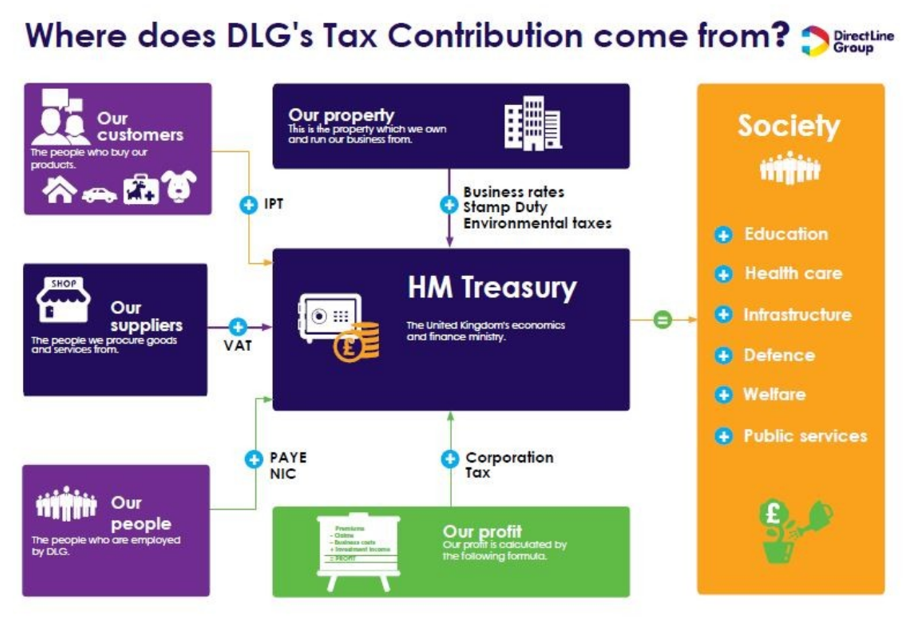
Tax Policy
The Direct Line Group Board determines the overarching risk appetite of the Group, within which tax risk sits, and puts in place an appropriate framework for compliance with this. It recognises that DLG has an important responsibility to its stakeholders and to HM Revenue & Customs (HMRC) to manage its tax obligations effectively.
The disclosure below meets the requirements of paragraph 16(2) of Sch 19 of FA 2016 to publish our Tax Policy by 31 December 2024. This Policy applies to all UK entities within the Group, but the principles also apply to any DLG operations overseas.
The Policy is owned by the DLG Group Tax department and is approved annually by the Audit Committee which ensures it remains relevant and effective. Any queries or clarifications should be directed to the Head of Tax.
DLG’s 2024 TAX POLICY
This policy sets out the approach of DLG to managing its tax affairs, to ensure it complies with applicable tax laws and regulations, meets its corporate social responsibilities as a contributor of corporate taxes and as a collector of taxes on behalf of HMRC, manages its tax affairs efficiently, and claims tax reliefs and incentives where appropriate.
Approach to risk management and governance
The Risk Management section of DLG’s Annual Report and Accounts (available on DLG’s website) provides information about DLG’s management of risk and governance framework. DLG has a risk management model that separates responsibilities into ‘three lines of defence’.
Having a policy framework (policies and minimum control standards) is a central part of DLG’s Enterprise Risk Management Strategy and Framework (ERMF). Risk assessments are undertaken regularly, along with the setting of appropriate controls. Compliance with minimum control standards (including the one relating to Tax) is reviewed annually.
The CFO is the Executive Committee (ExCo) member with executive responsibility for tax matters. The CFO delegates the day-to-day operational management of tax to the Head of Tax and the Group Tax function at DLG, and oversight is provided by the Audit Committee (AC). The Group Tax function is staffed with appropriately qualified individuals. Processes relating to different taxes help to ensure that all relevant matters are considered in the Group’s tax returns. These are allocated to appropriate process owners who ensure that business and legislative changes impacting these processes are monitored and changes made where applicable.
Regular reviews of tax processes are undertaken to ensure compliance with best practice. Tax is within the scope of the Financial Reporting Control Framework (FRCF), which adds additional governance and also ensures that control testing is carried out as appropriate. Any failed tax controls or tax risks identified are raised at the relevant Committee, with potential escalation to the Board where appropriate. The company is committed to full compliance with all UK tax laws, regulations and regulatory standards (e.g. Solvency II) where appropriate.
Attitude towards tax planning
Tax will be considered as part of material business decisions to ensure that associated tax consequences are understood and properly costed to enable the business to make informed decisions. DLG will make use of available tax incentives, reliefs and exemptions (such as Research & Development tax relief, capital allowances), and will endeavour to structure its business / operations in a tax efficient manner. DLG will only enter into a transaction that is commercially driven and will not undertake any tax planning that is inconsistent with legislation.
Tax advice may be sought externally where the capacity or specific skills to deal with the issue are not available internally. It may also be sought to provide insight into industry practice, or where there could be ambiguity over how a transaction should be taxed or where the transaction is particularly material. In such cases, discussions would also be held with HMRC and robust documentation maintained to support tax positions.
DLG requires the members of its Group Tax function to act lawfully and with integrity, which is consistent with various accounting and tax professional body codes of conduct, and that any tax planning should be based on a realistic assessment of the facts and on a credible view of the law. Members of the Group Tax function must not create, encourage or promote tax planning arrangements or structures that: 1) set out to achieve results contrary to the clear intention of Parliament; or 2) are artificial or contrived and seek to exploit shortcomings within the relevant legislation.
Level of risk in relation to UK taxation the group is prepared to accept
The Risk Management section of DLG’s Annual Report and Accounts sets out the risk appetite of DLG. The Board sets the overarching risk appetite for the Group, within which tax risk sits. Risk appetite statements which drive decision-making in the business are reviewed and challenged by the Risk Management Committee (RMC) and Board Risk Committee (BRC) and annually approved by the Board, which is ultimately responsible for ensuring that management puts appropriate processes in place to identify all relevant risks and ensure that these are managed accordingly.
DLG has a low threshold for tax risk and aims for certainty in its obligations wherever feasible, including through agreement with HMRC wherever considered appropriate. DLG manages risks to ensure compliance with its legal and regulatory requirements to submit accurate and complete tax returns on a timely basis.
DLG has a number of key tax risk indicators to monitor adherence to tax risk appetite.
Approach of the group towards its dealings with HMRC
DLG seeks to establish and maintain an open and co-operative working relationship with HMRC through regular communication and meetings with its Customer Compliance Manager (CCM), covering all taxes and duties. Where appropriate, matters are discussed in real time in respect of significant transactions, changes in the business, and the Group’s proposed approach to new legislation.
DLG submits applicable tax returns and makes associated payments in a timely manner. It responds to HMRC’s queries promptly and ensures the disclosure of all relevant facts, particularly where there is ambiguity in the tax treatment of any transaction. Any inadvertent errors are rectified and fully disclosed as soon as practicably possible after being identified.
Where applicable, DLG is proactive in working with HMRC to ensure that new tax legislation is appropriate and that tax anomalies are identified. It is receptive both to providing feedback to HMRC and to inviting HMRC to test any significant changes in its business / systems that may impact tax.
Click here to download the PDF version of the Tax Policy
Click here to find out where Direct Line Groups Tax Contribution comes from
Statements under section 172 of the Companies Act 2006
Direct Line Insurance Group Limited
Section 172(1) Statement
The Board of Direct Line Insurance Group Limited (“Direct Line”) confirms that during the year under review, it hasacted in the way it considers, in good faith, would be most likely to promote the long-term success of the Company for the benefit of its members as a whole, whilst having regard to the matters set out in Section 172(1)(a)-(f) of the Companies Act 2006 (“Section 172(1)”).
Purpose and Vision
The matters set out in Section 172(1) underpin Direct Line’s purpose and vision and form the foundation for the Board’s considerations and decision making. Our purpose – to help people carry on with their lives, giving them peace of mind now and in the future – is centred on customers and their long-term interests. Our vision – to create a world where insurance is personal, inclusive and a force for good – reflects our desire to do business in a way that benefits all stakeholders, the environment and wider society.
Stakeholders
Information on Direct Line’s key stakeholders is set out in the Sustainability section of the Strategic report on the following pages: Customers, pages 46 to 47; People, page 48; Society, pages 49 to 50; and the Planet, pages 51 to 54.
Engagement
The Board recognises that our stakeholders have diverse and sometimes competing interests that need to be finely balanced, and that these interests need to be heard and understood in order for them to be effectively reflected in decision making. Information about how the Board has engaged with stakeholders during the year and outcomes of that engagement can be found on pages89 to 90 in the table titled “How the Board engages with stakeholders.”
Board decisions and oversight
Examples of how stakeholder engagement and Section 172(1) matters have influenced Board discussion and decision making during the year can be found in the table titled “Consideration of Section 172(1) factors by the Board” on page 88. The table covers a number of key topics including: the takeover approaches from Ageas SA/NV ("Ageas") and Aviva; the return of capital to shareholders; the launch of a new strategy; and continuing compliance with the Consumer Duty rules. The metrics and processes which the Board looks at to ensure that business practices and behaviours reflect the Company’s culture, purpose and values, including the impact of decisions on key stakeholders, are set out on page 88. Information about Board oversight of environmental matters can be found on pages 58 to 71 in the TCFD Report.
| Section 172(1) Factor | Relevant Disclosures |
| the likely consequences of any decision in the long term | Mission, vision, purpose and strategic objectives (page 82) Consideration of Section 172(1) factors by the Board (pages 87 to 88) |
| the interests of the company’s employees | Key performance indicators – Colleague engagement scores (page 15) |
| the need to foster the company’s business relationships with suppliers, customers and others | Key Performance Indicators – NPS and customer complaints metrics (pages 7 and 47) Customer support (pages 46 to 47) Supply Chain (page 54) How the Board engages with stakeholders (pages 89 to 90) |
| the impact of the company’s operations on the community and the environment | Community Fund 2024 (page 49) External ratings, memberships and benchmarks (page 57) |
| the desirability of the company maintaining a reputation for high standards of business conduct | Our values (page 3) The role of the Board in the Company's culture (page 83) |
| the need to act fairly between members of the company | Capital management (page 24) Annual General Meeting (page 236) |
Churchill Insurance Company Limited
Section 172(1) Statement
The Directors of the Company confirm that during the year under review, they have acted in the way they consider would be most likely to promote the long-term success of the Company for the benefit of its members as a whole, whilst having regard to the matters set out in Section 172(1)(a) -(f) of the Companies Act 2006 ("Section 172(1)").
The matters set out in Section 172(1) underpin the Group's purpose and vision and form the foundation for considerations and decision making. The Group's purpose - to help people carry on with their lives, giving them peace of mind now and in the future - is centered on customers and their long-term interests. The Group's vision - to create a world where insurance is personal, inclusive and a force for good - reflects the desire to do business in a way that benefits all stakeholders, the environment and wider society. Further key disclosures in respect of each of the Section 172(1) matters can be found in the DLIG annual report for the year ended 31 December 2024 on page 86.
The Directors of DLIG, the ultimate parent entity of the Group, are also the Directors of the Company and except in cases in which a decision relates solely to the Company, such as considering the calculation of technical provisions, the debates and decisions of the Directors concern both companies. The Group's governance framework, which is consistent with the 2018 UK Corporate Governance Code, applied to the Company during the year. Further information about the Group's governance arrangements can be found in the DLIG's annual report for the year ended 31 December 2024 on page 82. The Company relies on resources made available by the Group including staff and suppliers who are respectively employed and contracted by a fellow subsidiary undertaking, DL Insurance Services Limited. Disclosures relating to employees, suppliers, customers and others may be found in the financial statements of DL Insurance Services Limited and the DLIG annual report for the year ended 31 December 2024.
The Group's vision and purpose are set out in the strategic report of DLIG for the year ended 31 December 2024 on page 44, further information on the Group's five-pillar sustainability strategy can also be found on that page. Details of the Group's engagement with the community and protection of the environment which applies to the Company, can be found in the DLIG annual report for the year ended 31 December 2024 on pages 49 and 51 respectively.
The Directors consider the likely consequences of any decision in the long term. Each company within the Group applies Group policies consistent in all key areas including supplier management and outsourcing, customer conduct, human resources and the environment. Group policies and minimum standards applied by the Company during the financial year included, for example, the Group Accounting minimum standard.
The Directors and management operate the business in a responsible manner with the aim of ensuring that the Company maintains a reputation for high standards of business conduct and good governance. The Group’s Code of Business Conduct provides guidance to the Group's employees and contractors on the high standards of professional and ethical conduct expected of them and aims to preserve the Group's and the Company's reputation for high standards of conduct. Information on the Group's Ethical Code for Suppliers can be found in the DLIG's annual report for the year ended 31 December 2024 on page 55.
DL Insurance Services Limited
Section 172(1) Statement and engagement with stakeholders
The Directors of the Company confirm that during the year under review, they have acted in the way they consider would be most likely to promote the long-term success of the Company for the benefit of its members as a whole, whilst having regard to the matters set out in Section 172(1)(a)-(f) of the Companies Act 2006 ("Section 172(1)").
The matters set out in Section 172(1) underpin the Group's purpose and vision and form the foundation for considerations and decision making. The Group's purpose - to help people carry on with their lives, giving them peace of mind now and in the future - is centred on customers and their long-term interests. The Group's vision - to create a world where insurance is personal, inclusive and a force for good - reflects the desire to do business in a way that benefits all stakeholders, the environment and wider society. Further key disclosures in respect of each of the Section 172(1) matters can be found in the DLIG annual report for the year ended 31 December 2024 on page 85.
All Directors of the Company are members of the Group's principal management committee, which helps the Group's Chief Executive Officer manage the Group's operations and implement the Group's strategy, including its approach to sustainability. The Group's vision, purpose and values and the five-pillar sustainability strategy, which includes engagement with the community and protection of the environment, are set out in the strategic report within the DLIG annual report for the year ended 31 December 2024 on pages 1 and 11, and page 72. The Group's governance framework, which is consistent with the 2018 UK Corporate Governance Code, applied to the Company during the year. Further information on the Company's governance arrangements can be found in the Directors' report on page 6.
The principal activity of the Company is the provision of services to fellow subsidiary companies and to the Group's partners, including Motability, including contracting with suppliers, buying or leasing premises and employing staff. Further information on the Company's engagement with employees can be found in the Directors' report on page 6 and in the corporate governance report within the DLIG annual report for the year ended 31 December 2024 on pages 89 to 90.
Examples of how the Group has had regard to the need to foster the Company's business relationships with suppliers, customers and others, and the effect of that regard, including on the principal decisions taken by the Company during the financial year are detailed in the corporate governance report within the DLIG annual report, for the year ended 31 December 2024 on page 88. The Company enters into the substantial majority of all contracts with suppliers to the Group and, during the year, the Directors approved the Company's transparency statement on modern slavery which demonstrates how the Company takes its supply chain responsibilities seriously.
The Directors consider the likely consequences of decisions in the long term. Each company within the Group applies Group policies consistent with the Group's culture in all key areas including supplier management and outsourcing, customer conduct, human resources and the environment. Group policies and minimum standards applied by the Company during the financial year included, for example, the Group Accounting minimum standard.
The Directors and management operate the business with the aim of ensuring that the Company maintains a reputation for high standards of business conduct and good governance. The Group's Code of Business Conduct, which the Company applies, embodies the Group's culture, purpose and values. The Code of Business Conduct provides guidance to the Group's employees and contractors on the high standards of professional and ethical conduct expected of them and aims to preserve the Group's and the Company's reputation for high standards of conduct. Information on the Group's Ethical Code for Suppliers, which the Company also applies, can be found in the DLIG annual report for the year ended 31 December 2024 on page 55. The Group's statement on modern slavery can be found on the Group's corporate website.
Green Flag Limited
Section 172(1) Statement and engagement with stakeholders
The Directors of the Company confirm that during the year under review, they have acted in the way they consider would be most likely to promote the long-term success of the Company for the benefit of its members as a whole, whilst having regard to the matters set out in Section 172(1)(a)-(f) of the Companies Act 2006 ("Section 172(1)"). The Company’s business is closely linked to the activity of the Group and it is helpful to consider the Group context for the purpose of this statement.
The matters set out in Section 172(1) underpin the Group's purpose and vision and form the foundation for considerations and decision making. The Group's purpose - to help people carry on with their lives, giving them peace of mind now and in the future - is centred on customers and their long-term interests. The Group's vision - to create a world where insurance is personal, inclusive and a force for good - reflects the desire to do business in a way that benefits all stakeholders, the environment and wider society. Key disclosures in respect of each of the Section 172(1) matters relevant to the Group as a whole can be found in the DLIG annual report for the year ended 31 December 2024 on page 16.
The Group’s vision, purpose and values and the five-pillar sustainability strategy, which includes engagement with the community and protection of the environment, are set out in the strategic report of DLIG for the year ended 31 December 2024 on page 10 and pages 50 to 51. The Group’s governance framework, which is consistent with the 2018 UK Corporate Governance Code, was applied by the Company during the year. Further information about the Group’s governance arrangements can be found in the DLIG annual report 2024 on page 157.
The Company relies on resources made available by the Group including staff and suppliers who are respectively employed and contracted by a fellow subsidiary undertaking, DL Insurance Services Limited. Disclosures relating to employees, suppliers, customers and others may be found in the annual report and financial statements of DL Insurance Services Limited and DLIG for the year ended 31 December 2024.
The Directors consider the likely consequences of any decision in the long-term. Each company within the Group is expected to abide by Group policies consistent with the Group’s culture in all key areas including supplier management and outsourcing, customer conduct, human resources and the environment. Group policies and minimum standards applied by the Company during the financial year included, for example, the Group Accounting minimum standard.
During the year, the Directors considered and approved an amendment to the inter-company loan agreement between the Company as lender and DLIG as borrower in the light of the Directors’ duties under Section 172(1).
The Directors and management operate the business in a responsible manner with the aim of ensuring that the Company maintains a reputation for high standards of business conduct and good governance. The Group's Code of Business Conduct provides guidance to the Group’s employees and contractors on the high standards of professional and ethical conduct expected of them and aims to preserve the Group’s and the Company’s reputation for high standards of conduct. Information on the Group’s Ethical Code for Suppliers can be found in the DLIG annual report 2024 on page 107. The Group’s transparency statement on Modern Slavery can be found on the Group’s corporate website.
U K Insurance Limited
Section 172(1) Statement
The Directors of the Company confirm that during the year under review, they have acted in the way they consider would be most likely to promote the long-term success of the Company for the benefit of its members as a whole, whilst having regard to the matters set out in Section 172(1)(a)-(f) of the Companies Act 2006 ("Section 172(1)").
The matters set out in Section 172(1) underpin the Group's purpose and vision and form the foundation for considerations and decision making. The Group's purpose - to help people carry on with their lives, giving them peace of mind now and in the future - is centred on customers and their long-term interests. The Group's vision - to create a world where insurance is personal, inclusive and a force for good - reflects the desire to do business in a way that benefits all stakeholders, the environment and wider society. Further key disclosures in respect of each of the Section 172(1) matters can be found in the DLIG annual report for the year ended 31 December 2024 on page 85.
The Directors of DLIG, the ultimate parent entity of the Group, are also the Directors of the Company. Except in cases in which a decision relates solely to the Company, such as the payment of a dividend, the debates and decisions of the Directors concern both companies.The Group's governance framework, which is consistent with the 2018 UK Corporate Governance Code, applied to the Company during the year. Further information on the Company's governance arrangements can be found in the Directors' report on page 8.
The Company relies on resources made available by the Group including employees and suppliers who are respectively employed and contracted by a fellow subsidiary undertaking, DL Insurance Services Limited. Disclosures relating to employees and suppliers may be found in the financial statements of DL Insurance Services Limited and the DLIG annual report for the year ended 31 December 2024.
The Group's vision and purpose and the five-pillar sustainability strategy, which includes engagement with the community and protection of the environment and which applies to the Company, are set out in the strategic report within the DLIG annual report for the year ended 31 December 2024 on page 1 and pages 41 to 55.
Examples of how the Group have had regard to the need to foster the Company's business relationships with suppliers, customers and others, and the effect of that regard, including on the principal decisions taken by the Company during the financial year are detailed in the corporate governance report within the DLIG annual report, for the year ended 31 December 2024 on page 88. The Company enters into the substantial majority of all contracts with suppliers to the Group and, during the year, the Directors approved the Company's transparency statement on modern slavery which demonstrates how the Company takes its supply chain responsibilities seriously.
The Directors consider the likely consequences of decisions in the long term. Each company within the Group applies Group policies consistent with the Group's culture in all key areas including supplier management and outsourcing, customer conduct, human resources and the environment. Group policies and minimum standards applied by the Company during the financial year included, for example, the Group Accounting minimum standard.
The Directors and management operate the business with the aim of ensuring that the Company maintains a reputation for high standards of business conduct and good governance. The Group's Code of Business Conduct, which the Company applies, embodies the Group's culture, purpose and values. The Code of Business Conduct provides guidance to the Group's employees and contractors on the high standards of professional and ethical conduct expected of them and aims to preserve the Group's and the Company's reputation for high standards of conduct. Information on the Group's Ethical Code for Suppliers, which the Company also applies, can be found in the DLIG annual report for the year ended 31 December 2024 on page 55 The Company's statement on modern slavery can be found on the Group's corporate website.
U K Insurance Business Solutions Limited
Section 172(1) statement and engagement with stakeholders
The Directors of the Company confirm that during the year under review, they have acted in the way they consider would be most likely to promote the long-term success of the Company for the benefit of its members as a whole, whilst having regard to the matters set out in Section 172(1)(a)-(f) of the Companies Act 2006 ("Section 172(1)"). The Company’s business is closely linked to the activity of the Group and it is helpful to consider the Group context for the purpose of this statement.
The matters set out in Section 172(1) underpin the Group's purpose and vision and form the foundation for considerations and decision making. The Group's purpose - to help people carry on with their lives, giving them peace of mind now and in the future - is centred on customers and their long-term interests. The Group's vision - to create a world where insurance is personal, inclusive and a force for good - reflects the desire to do business in a way that benefits all stakeholders, the environment and wider society. Key disclosures in respect of each of the Section 172(1) matters relevant to the Group as a whole can be found in the DLIG annual report for the year ended 31 December 2024 on page 86.
Directors of the company are either members of the Group’s Executive Committee or of the Enterprise Leadership Network, which support the Group’s Chief Executive Officer in managing the Group’s operations and implementing the Group’s strategy, including its approach to sustainability. The Group’s vision, purpose and values and the five-pillar sustainability strategy, which includes engagement with the community and protection of the environment, are set out in the strategic report of DLIG for the year ended 31 December 2024 on pages 44 to 56. The Group’s governance framework, which is consistent with the 2018 UK Corporate Governance Code, applied to the Company during the year. Further information on the Company’s governance arrangements can be found in the Directors’ report on page 7.
The Company relies on resources made available by the Group including staff and suppliers who are respectively employed and contracted by a fellow subsidiary undertaking, DL Insurance Services Limited. Disclosures relating to employees, suppliers, customers and others may be found in the annual report and financial statements of DL Insurance Services Limited and DLIG for the year ended 31 December 2024.
The Directors consider the likely consequences of any decision in the long-term. Each company within the Group is expected to abide by Group policies consistent with the Group’s culture in all key areas including supplier management and outsourcing, customer conduct, human resources and the environment. Group policies and minimum standards applied by the Company during the financial year included, for example, the Group Accounting minimum standard.
During the year, the Directors considered and approved: a self-assessment of the effectiveness of oversight of the Company’s Appointed Representatives and Introducer Appointed Representatives; the Consumer Duty Annual Board Report; and a variation to an inter-company loan agreement, each in the light of the Directors’ duties under Section 172(1).
The Directors and management operate the business in a responsible manner with the aim of ensuring that the Company maintains a reputation for high standards of business conduct and good governance. The Group's Code of Business Conduct provides guidance to the Group’s employees and contractors on the high standards of professional and ethical conduct expected of them and aims to preserve the Group’s and the Company’s reputation for high standards of conduct. Information on the Group’s Ethical Code for Suppliers can be found in the DLIG’s annual report for the year ended 31 December 2024 on page 55.
UK Assistance Accident Repair Centres Limited
Section 172(1) Statement and engagement with stakeholders
The Directors of the Company confirm that during the year under review, they have acted in the way they consider would be most likely to promote the long-term success of the Company for the benefit of its members as a whole, whilst havingregard to the matters set out in Section 172(1)(a)-(f) of the Companies Act 2006 ("Section 172(1)"). The Company’s business is closely linked to the activity of the Group and it is helpful to consider the Group context for the purpose of this statement.
The matters set out in Section 172(1) underpin the Group's purpose and vision and form the foundation for considerations and decision making. The Group's purpose - to help people carry on with their lives, giving them peace of mind now and in the future - is centred on customers and their long-term interests. The Group's vision - to create a world where insurance is personal, inclusive and a force for good - reflects the desire to do business in a way that benefits all stakeholders, the environment and wider society. Further key disclosures in respect of each of the Section 172(1) matters relevant to the Group as a whole can be found in the DLIG annual report for the year ended 31 December 2024 on page 86.
The Group’s vision, purpose and values and the five-pillar sustainability strategy, which includes engagement with the community and protection of the environment, are set out in the strategic report of DLIG for the year ended 31 December 2024 on page 83 and 44. The Group’s governance framework, which is consistent with the 2018 UK Corporate Governance Code, applied to the Company during the year. Further information on the Company’s governance arrangements can be found in the Directors’ report on pages 5 and 6.
The Company relies on resources made available by the Group including staff and suppliers who are respectively employed and contracted by a fellow subsidiary undertaking, DL Insurance Services Limited. Disclosures relating to employees, suppliers, customers and others may be found in the annual report and financial statements of DL Insurance Services Limited and DLIG for the year ended 31 December 2024.
The Company operates the Group’s motor vehicle repair centres. The Group’s sustainability plan aims to mitigate the Group’s impact on climate change and aims for the Company to be the most energy efficient repair network in the UK, by investing in its estate and repair processes.
The Directors consider the likely consequences of any decision in the long-term. Each company within the Group is expected to abide by Group policies consistent with the Group’s culture in all key areas including supplier management and outsourcing, customer conduct, human resources and the environment. Group policies and minimum standards applied by the Company during the financial year included, for example, the Group Accounting minimum standard.
During the year, the Directors considered and approved: a variation to the Panel Membership Agreement between the Company and U K Insurance Limited (which is an associated undertaking as defined in section 1151(3) of the Companies Act 2006); a number of repair services agreements; a variation to the inter-company loan agreement between the Company as lender and DLIG as borrower; and the payment of a dividend in respect of the financial year ended 31 December 2024, each in the light of the Directors’ duties under Section 172(1).
The Directors and management operate the business in a responsible manner with the aim of ensuring that the Company maintains a reputation for high standards of business conduct and good governance. The Group's Code of Business Conduct provides guidance to the Group’s employees and contractors on the high standards of professional and ethical conduct expected of them and aims to preserve the Group’s and the Company’s reputation for high standards of conduct. Information on the Group’s Ethical Code for Suppliers can be found in the DLIG’s annual report for the year ended 31 December 2024 on page 55. The Company’s transparency statement on modern slavery can be found on the Group’s corporate website.


